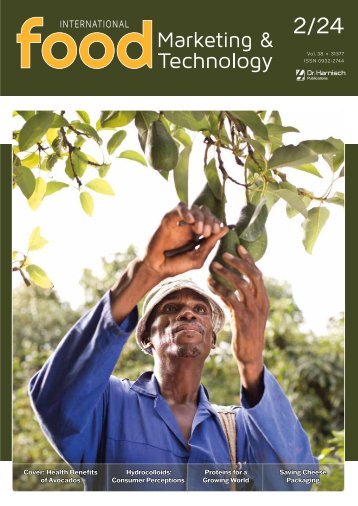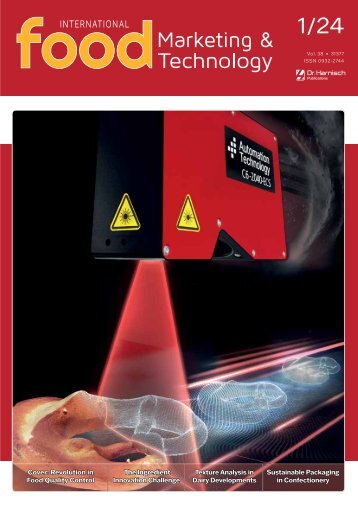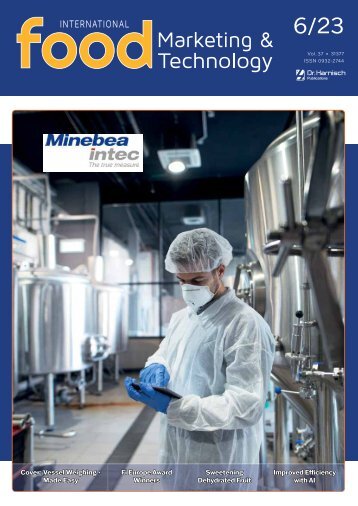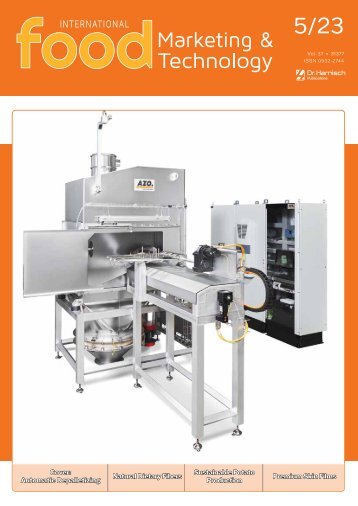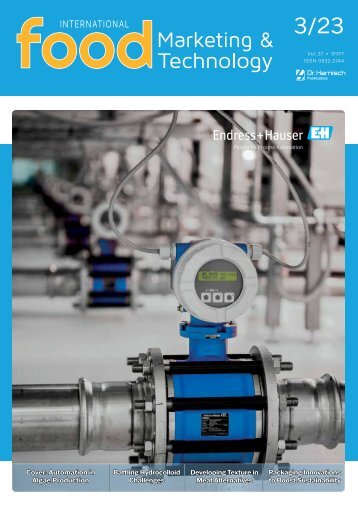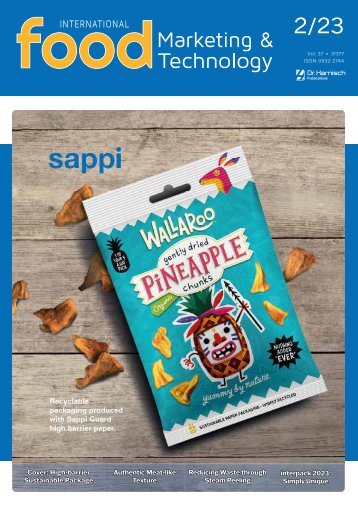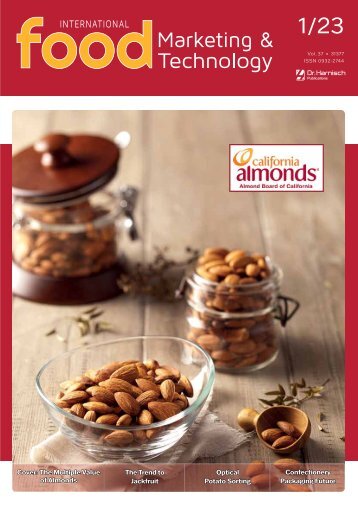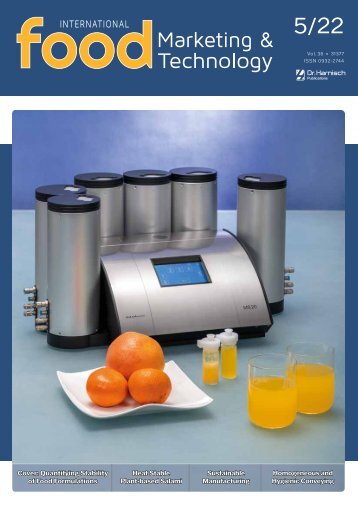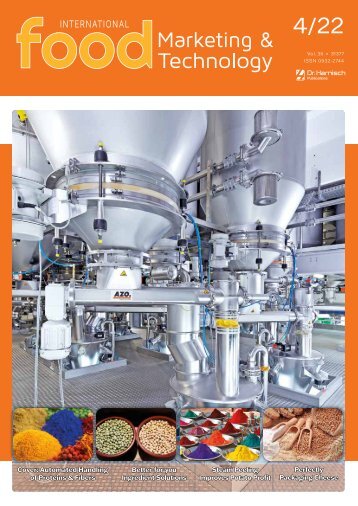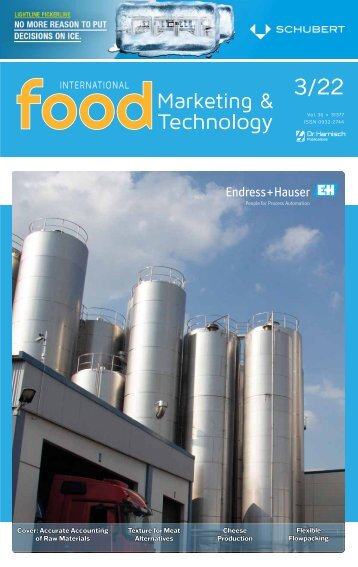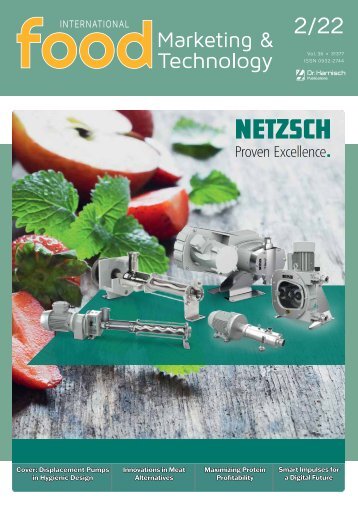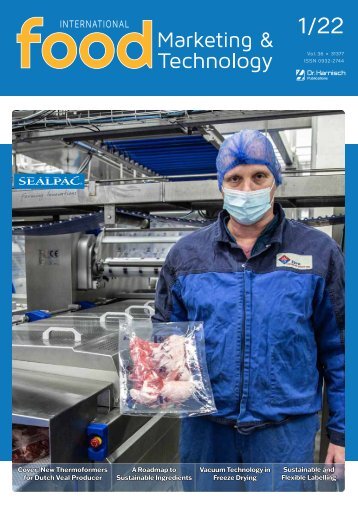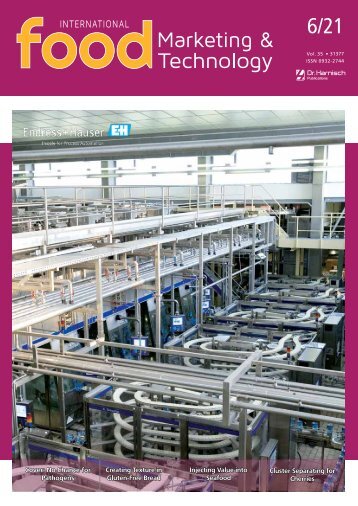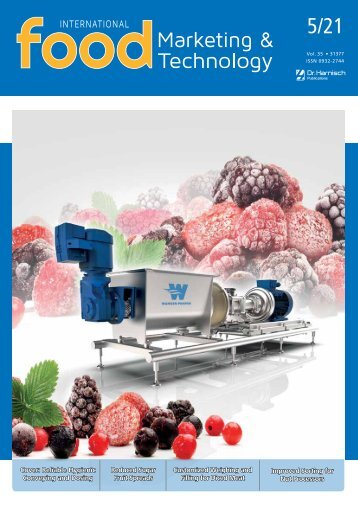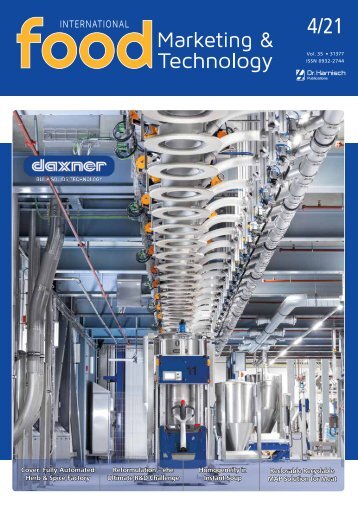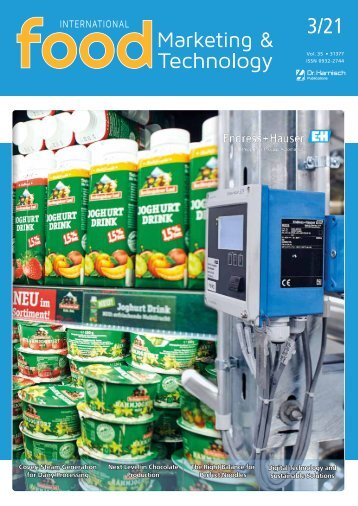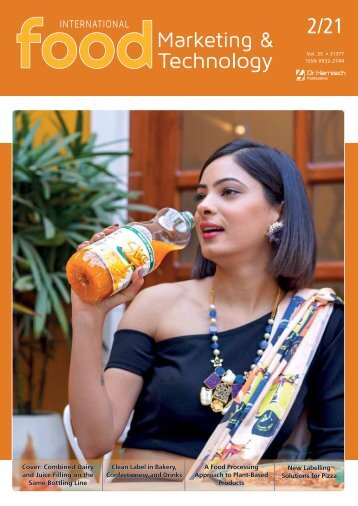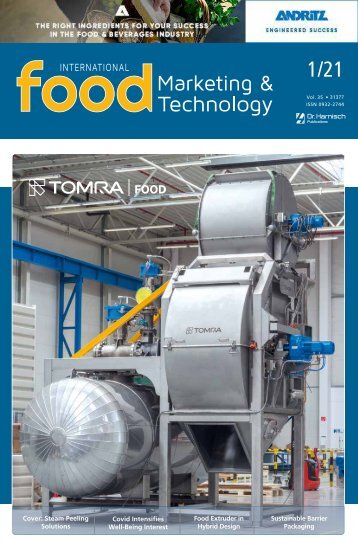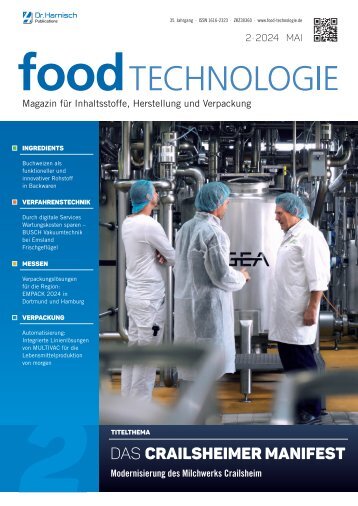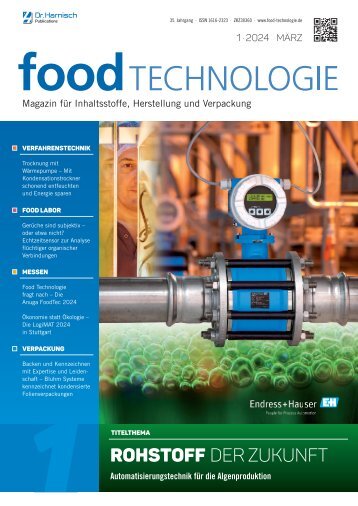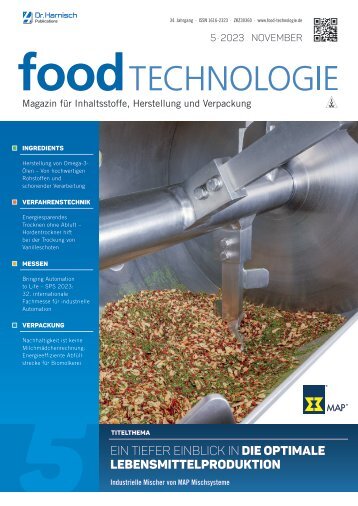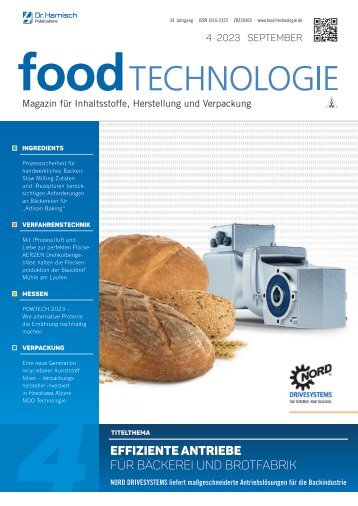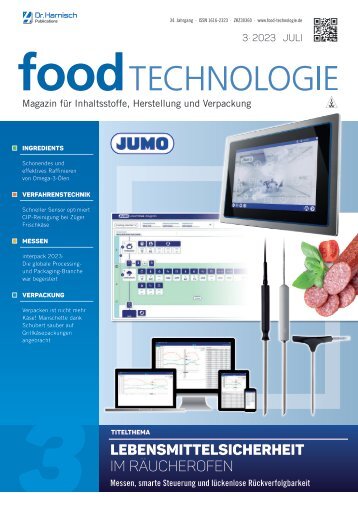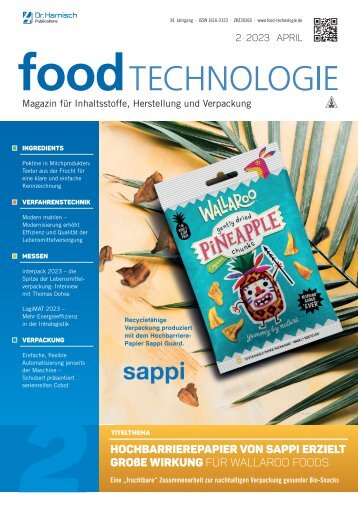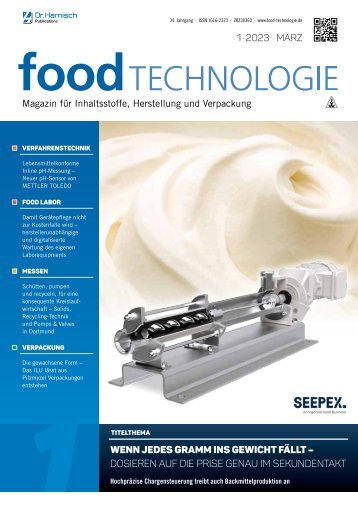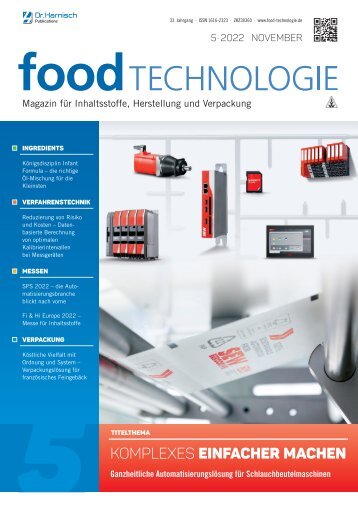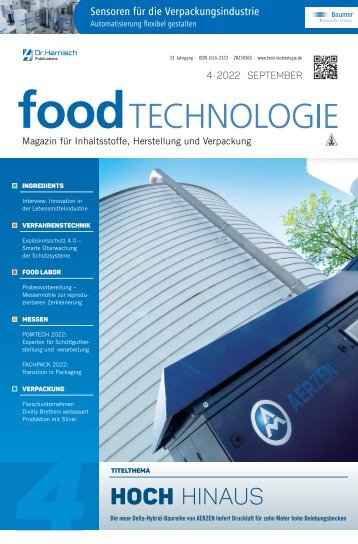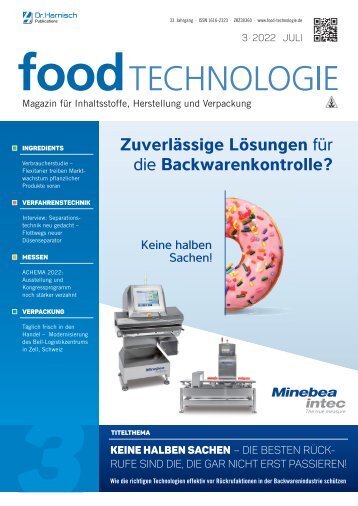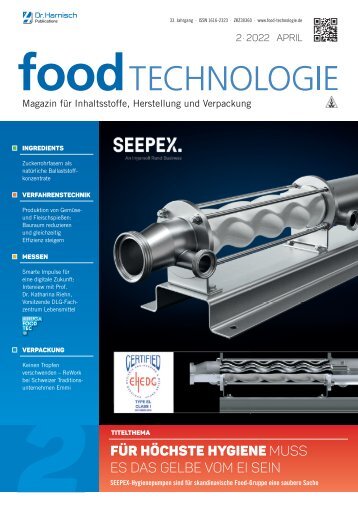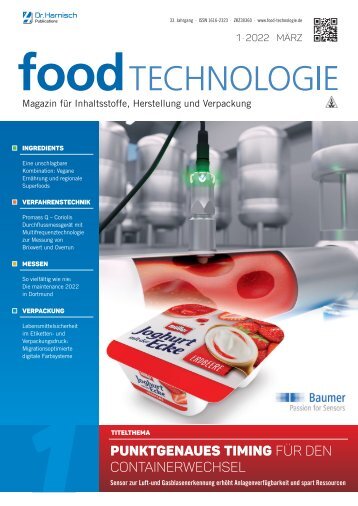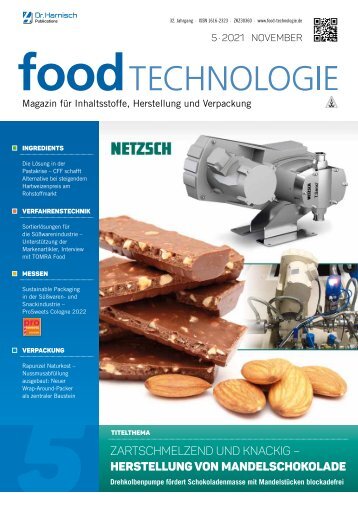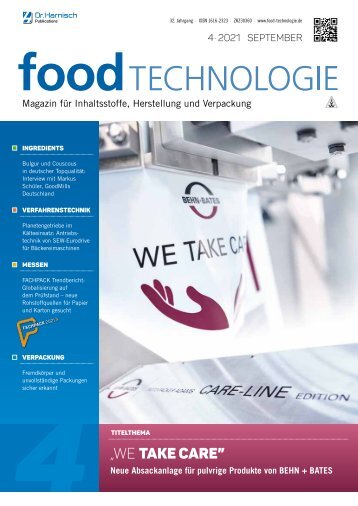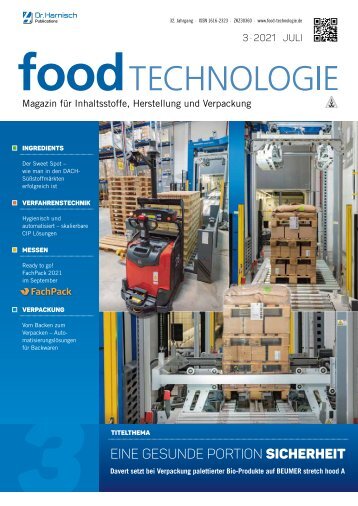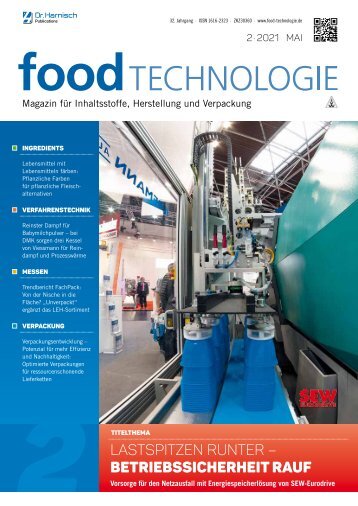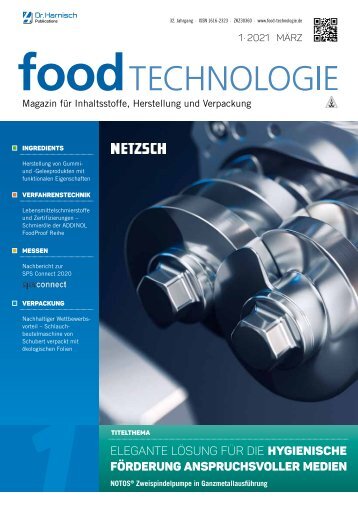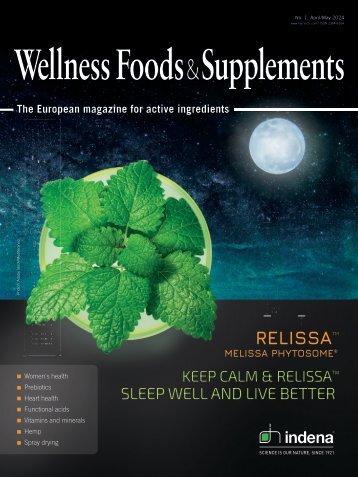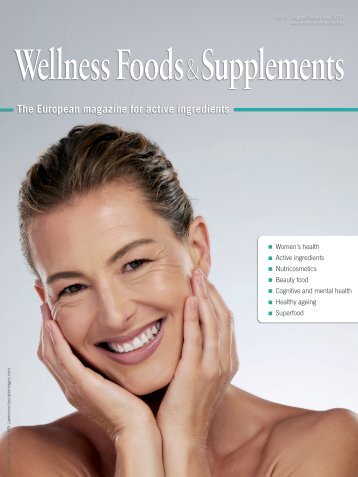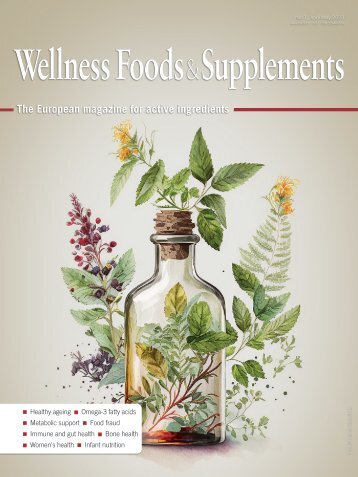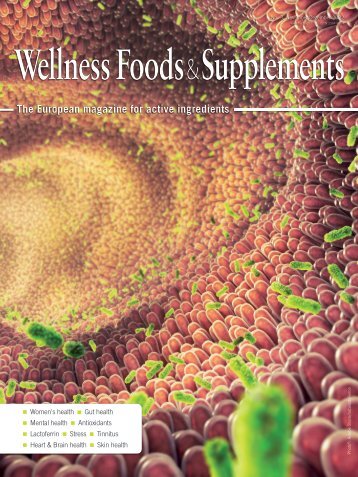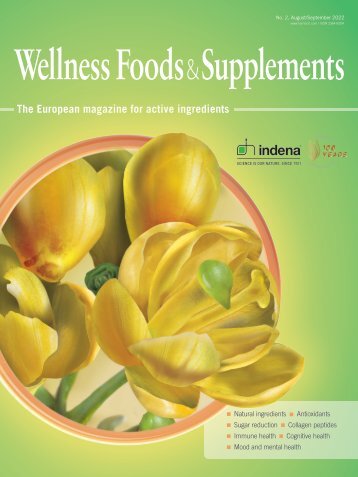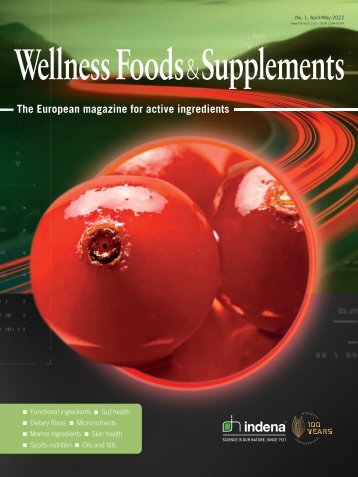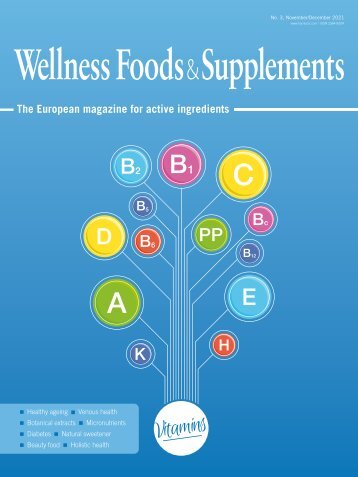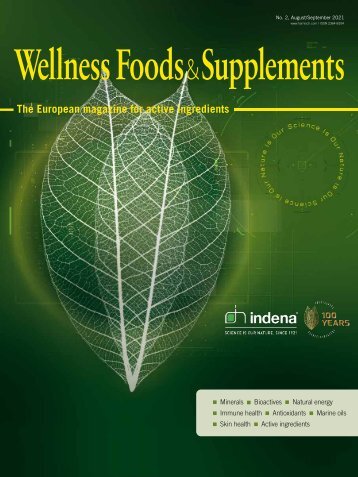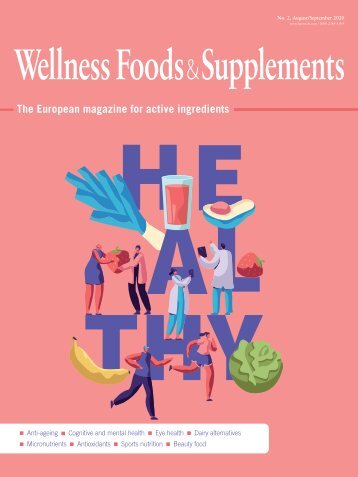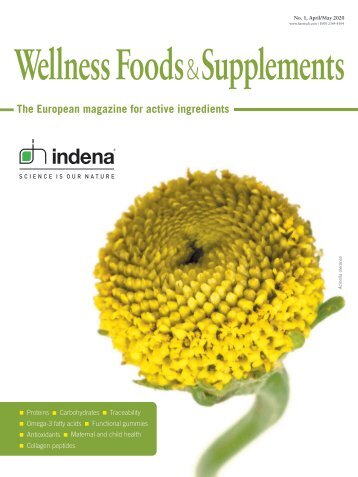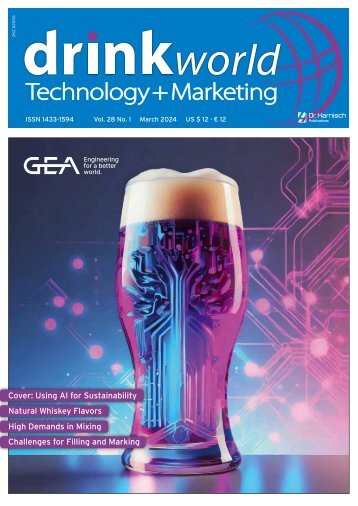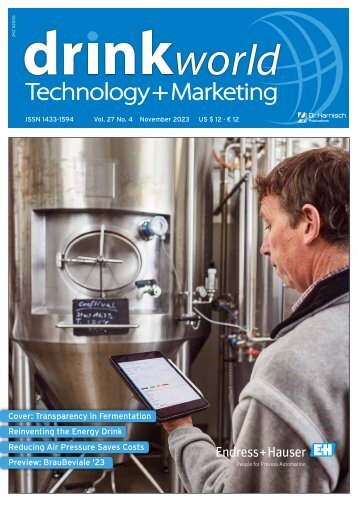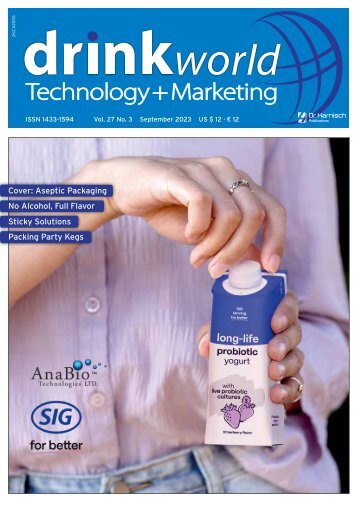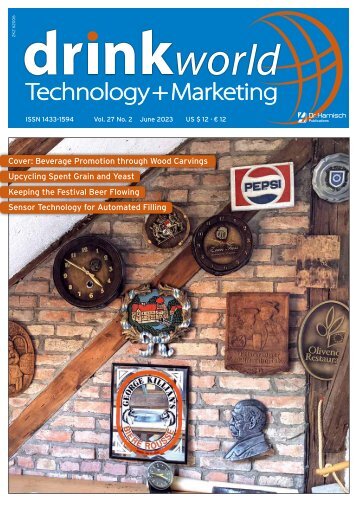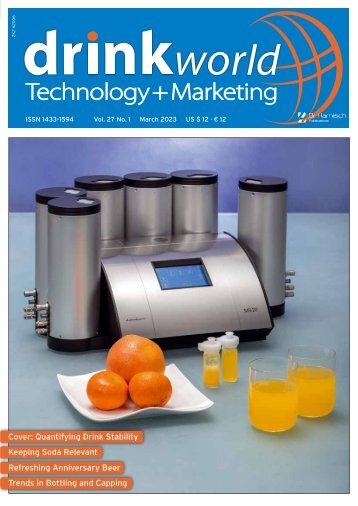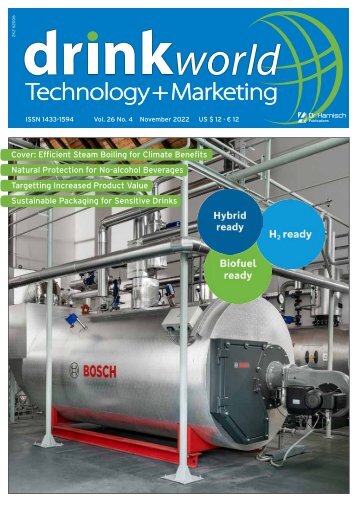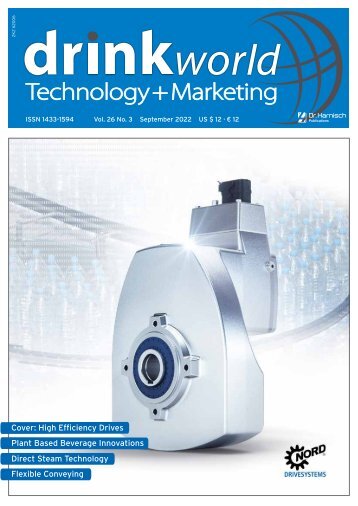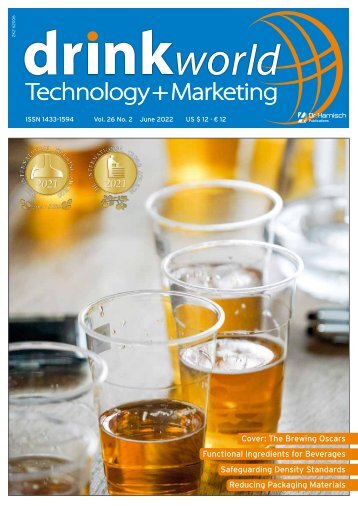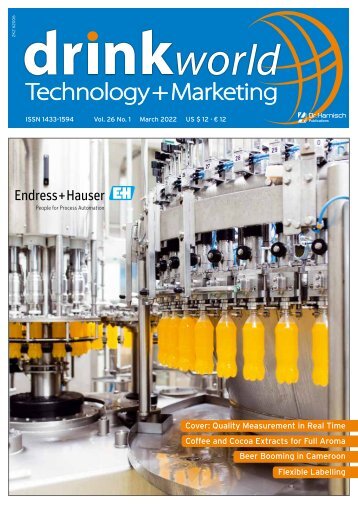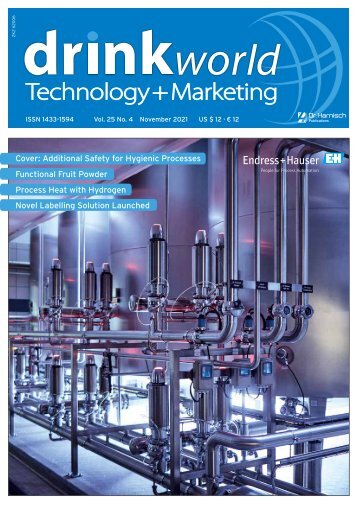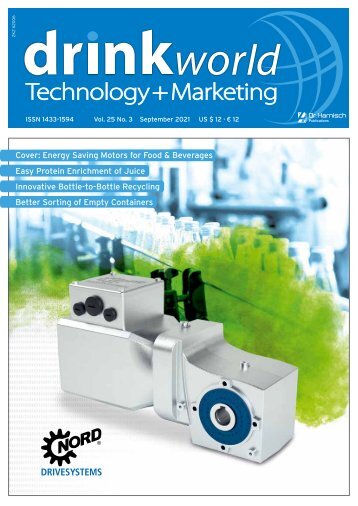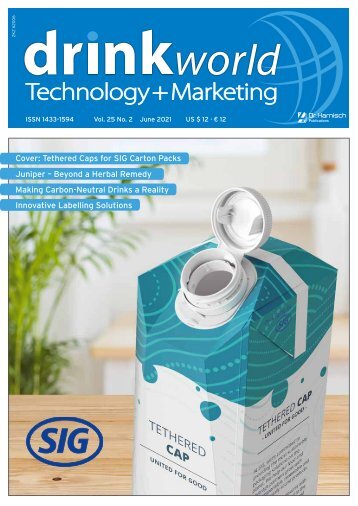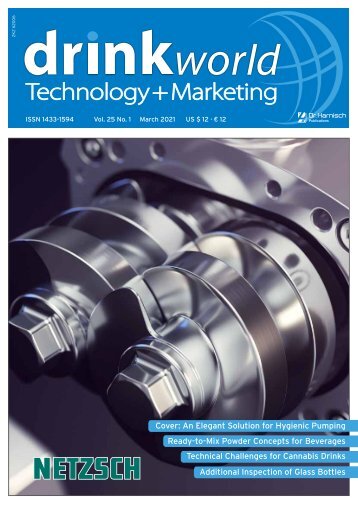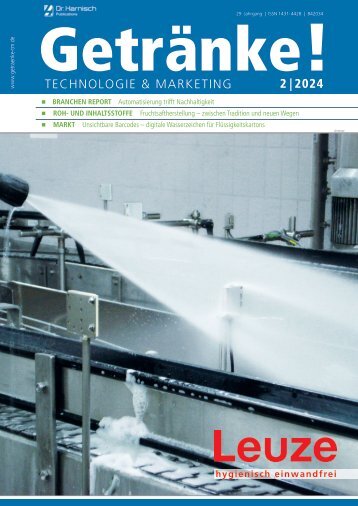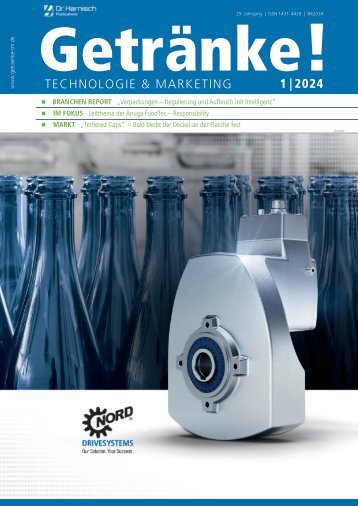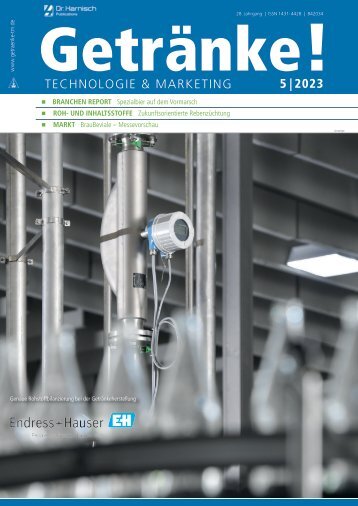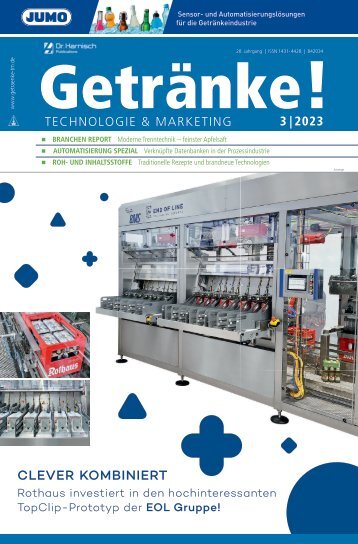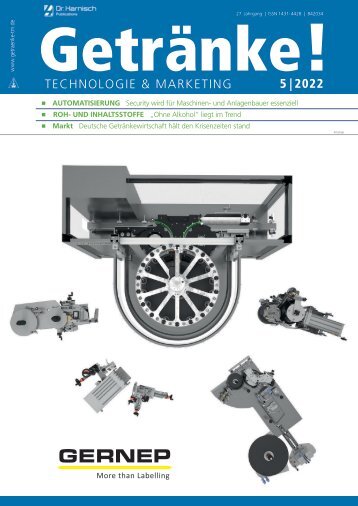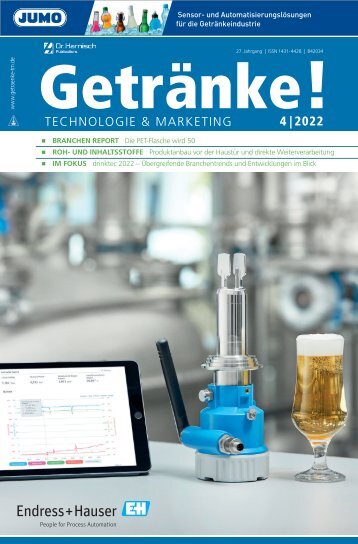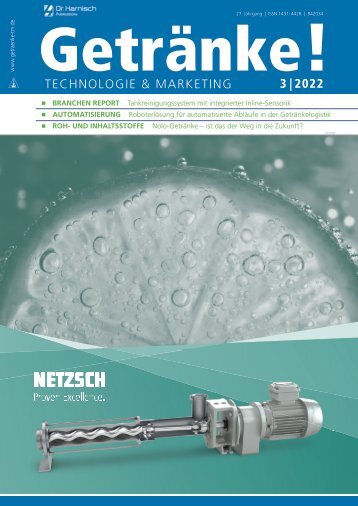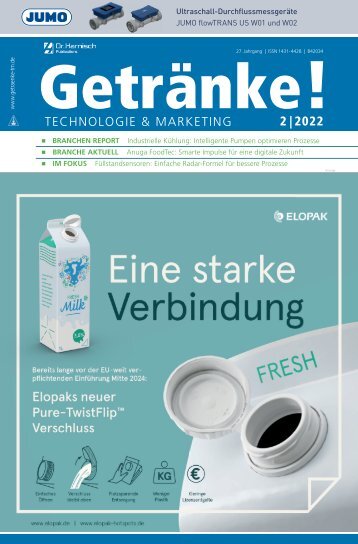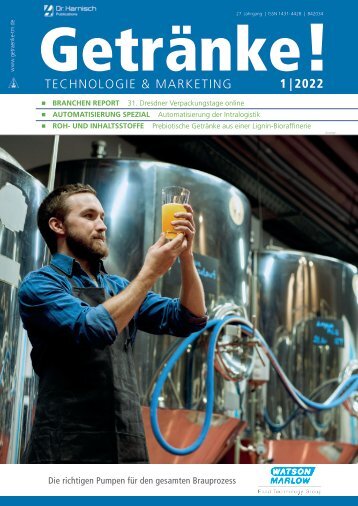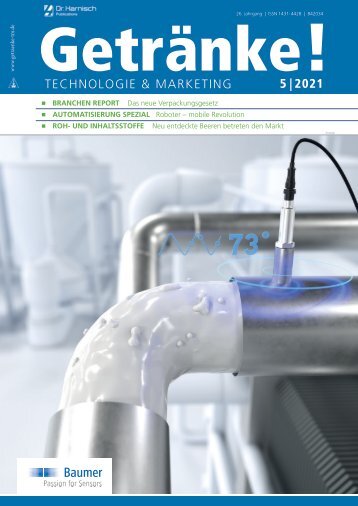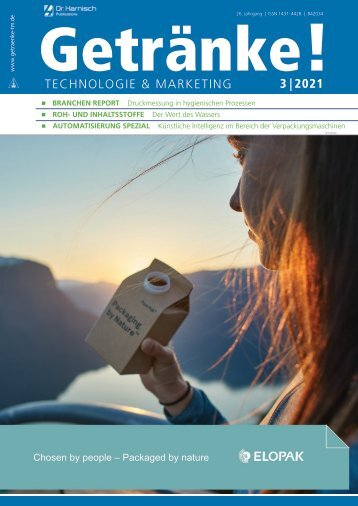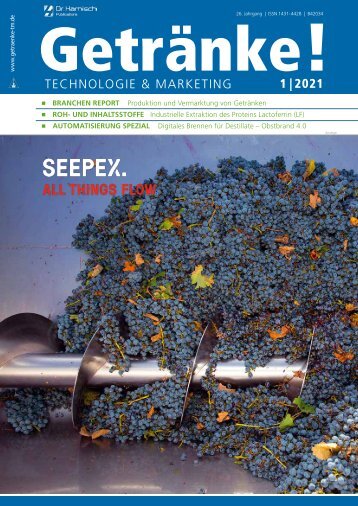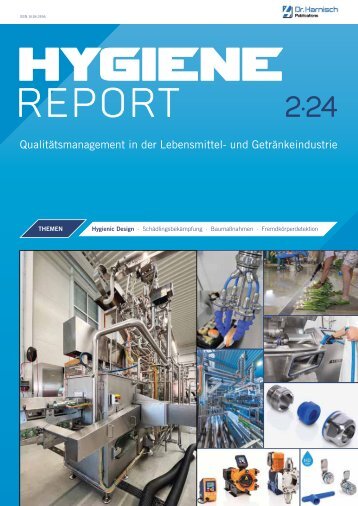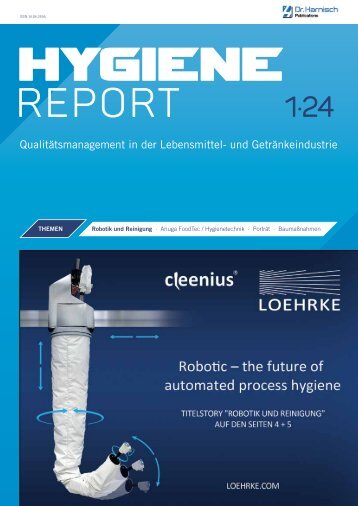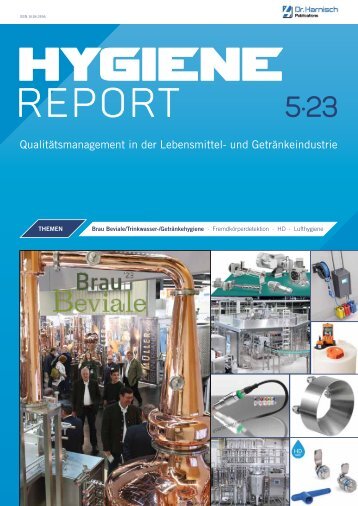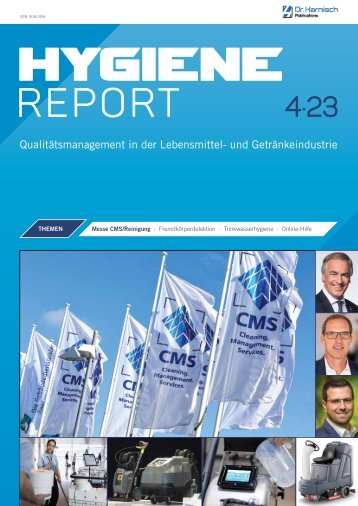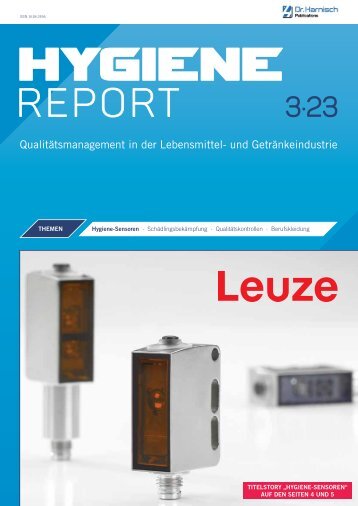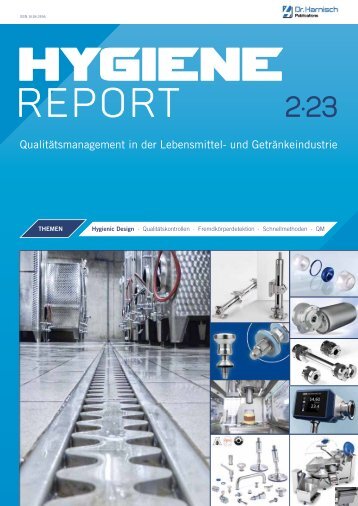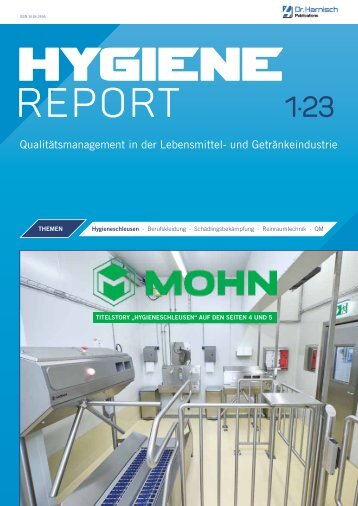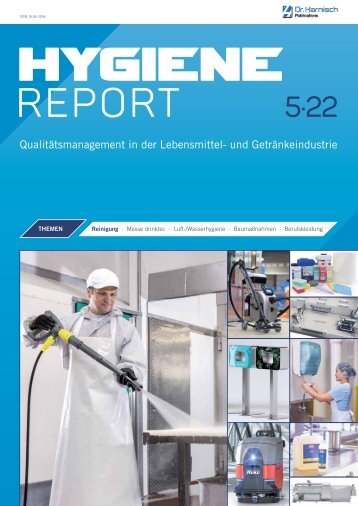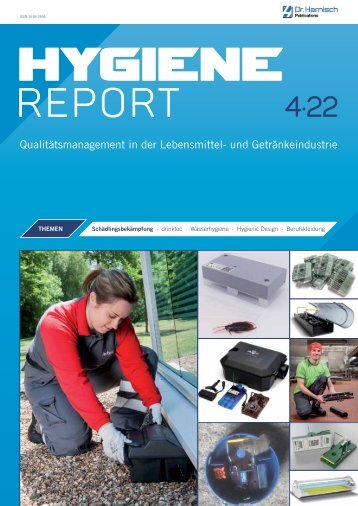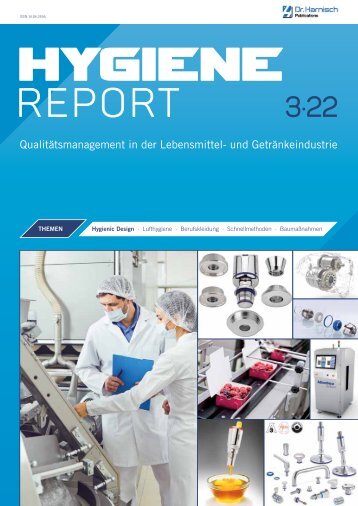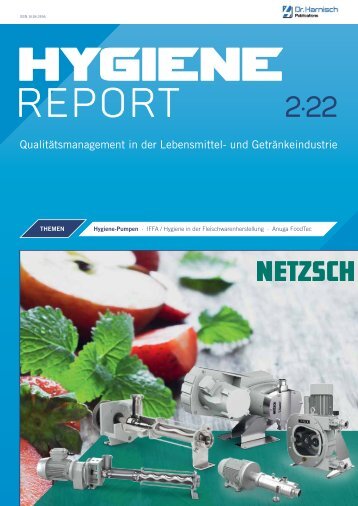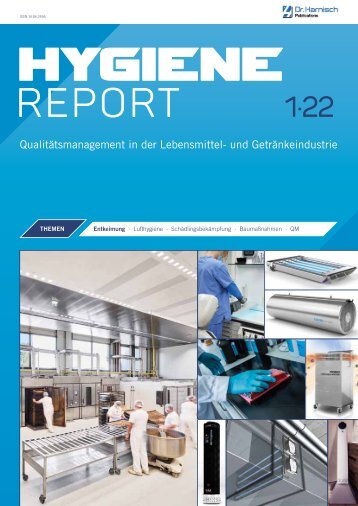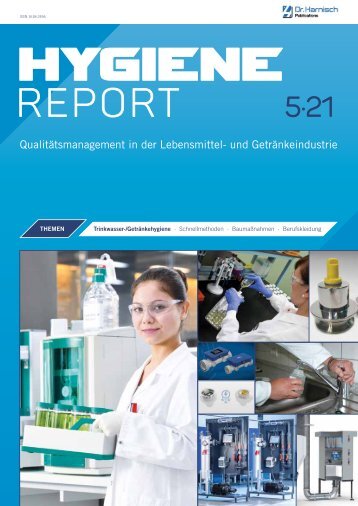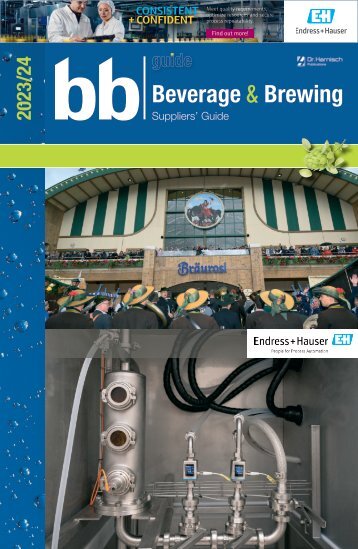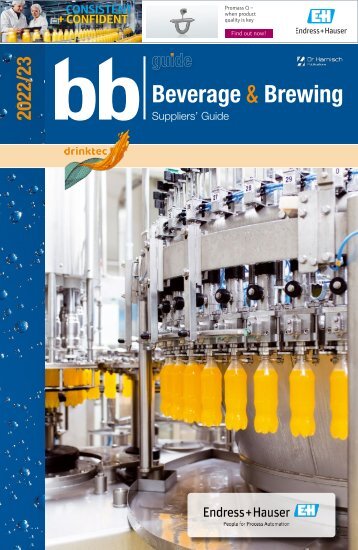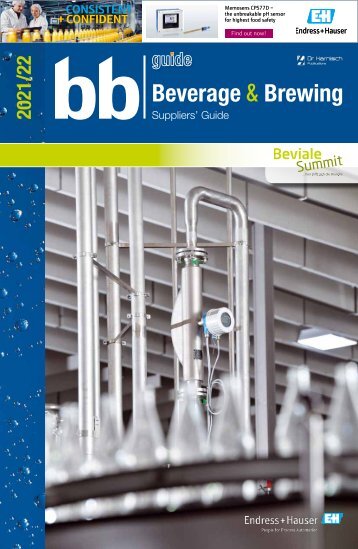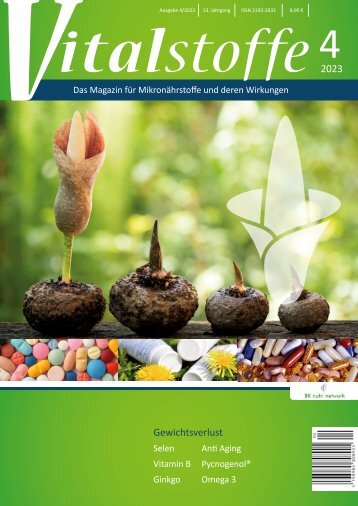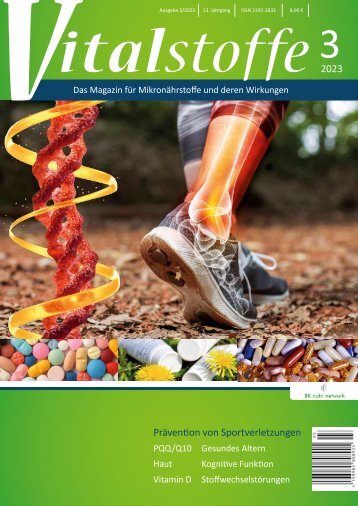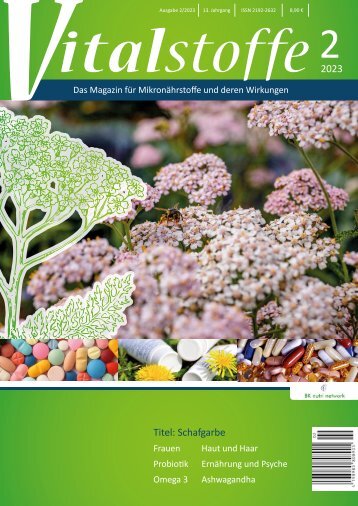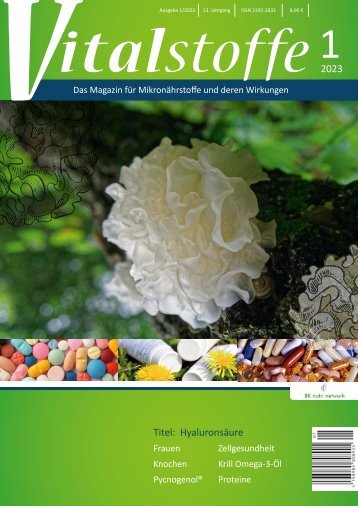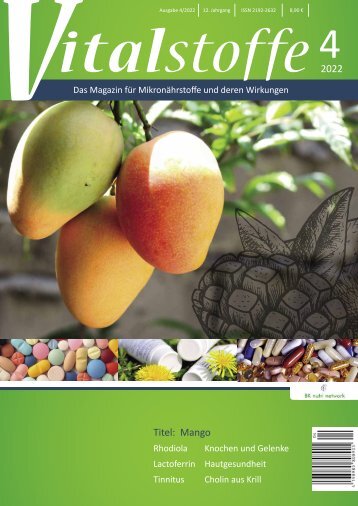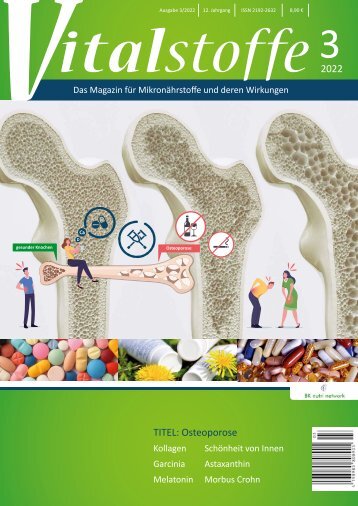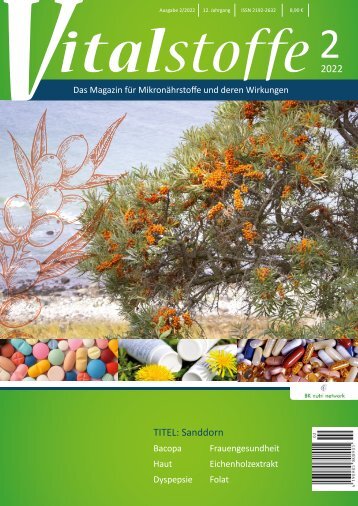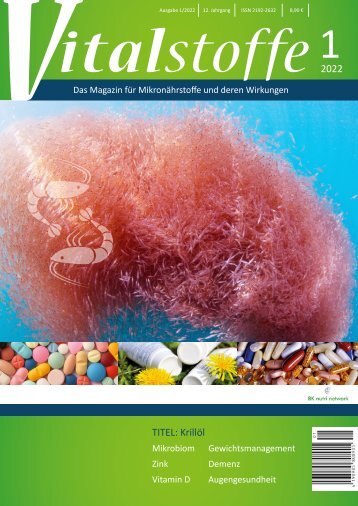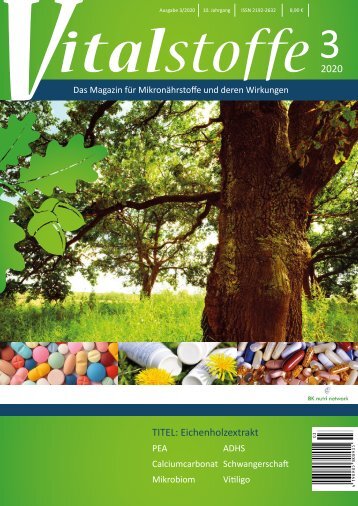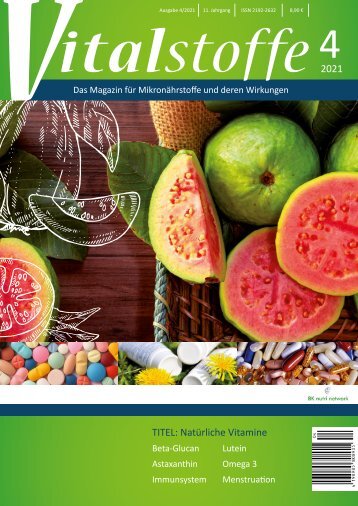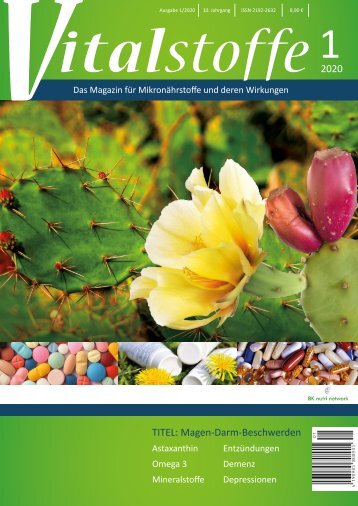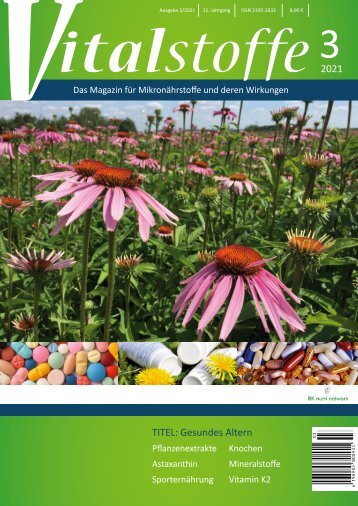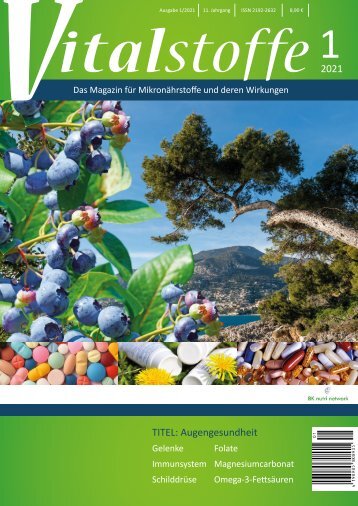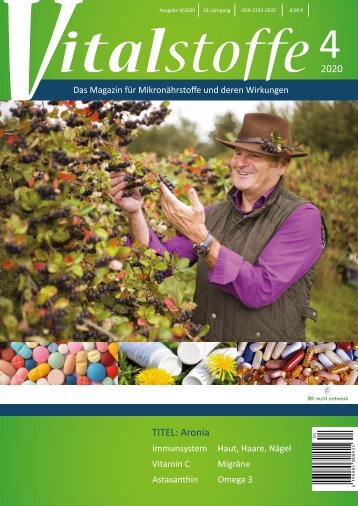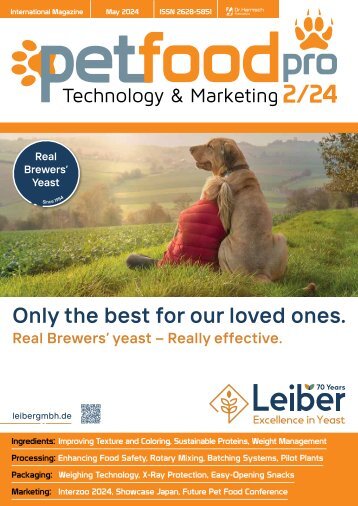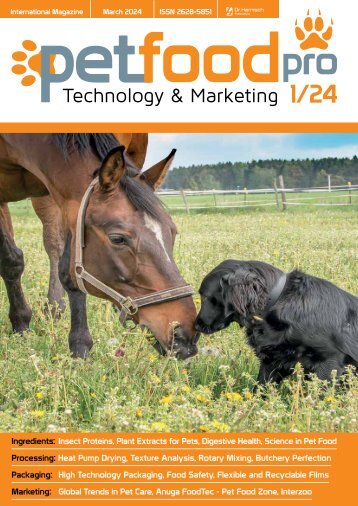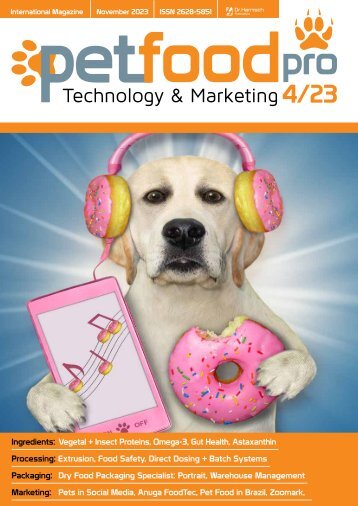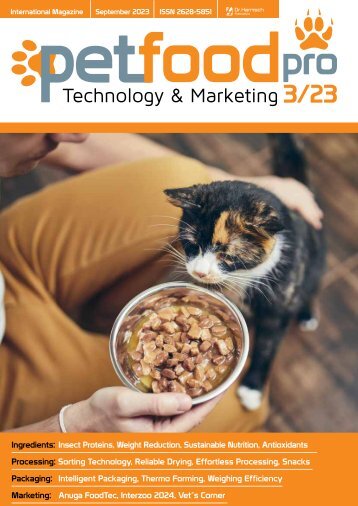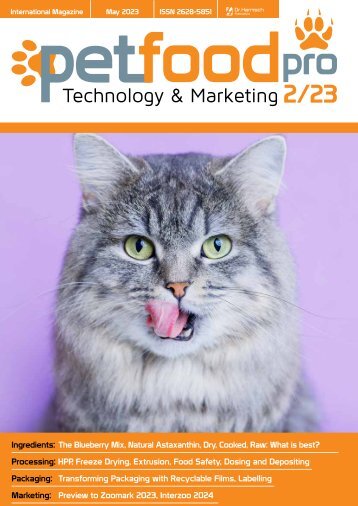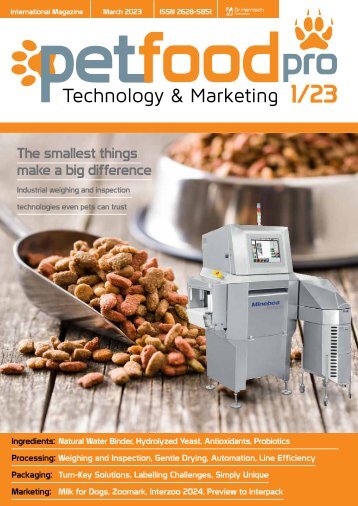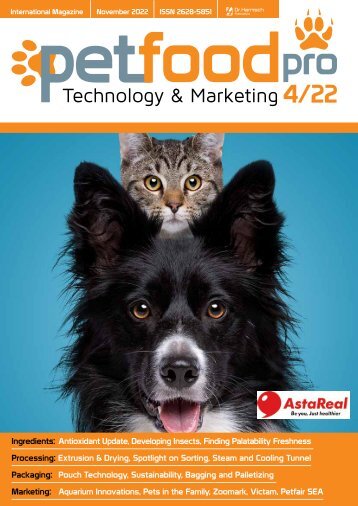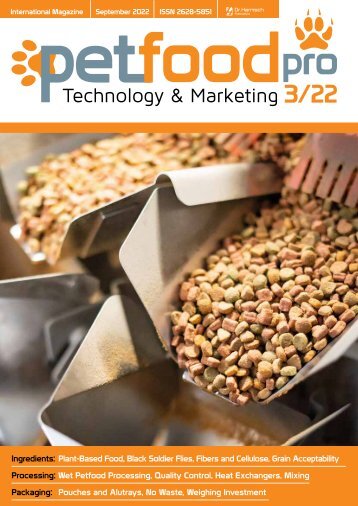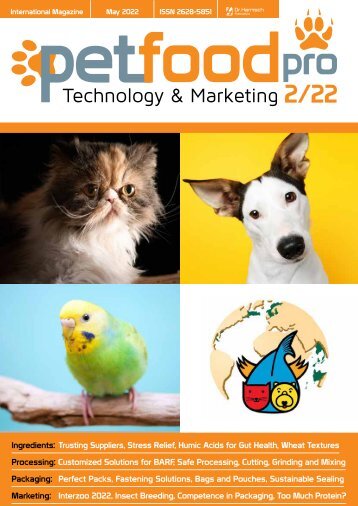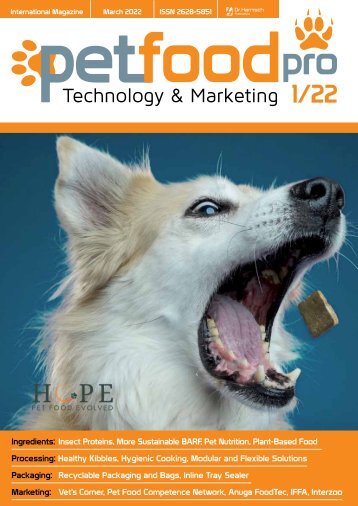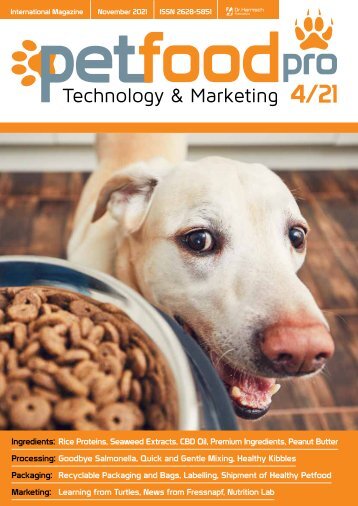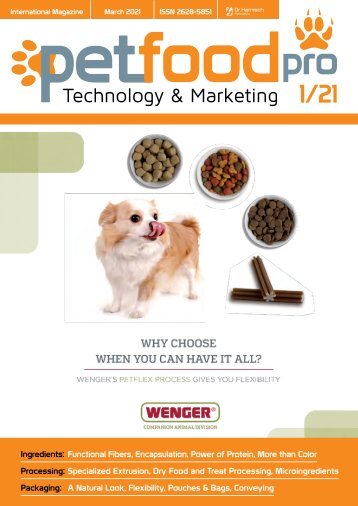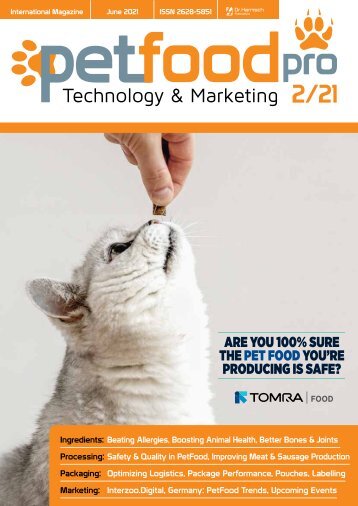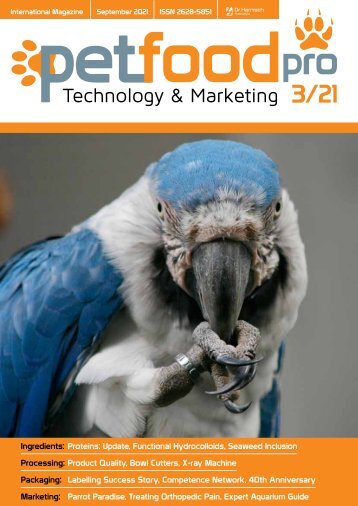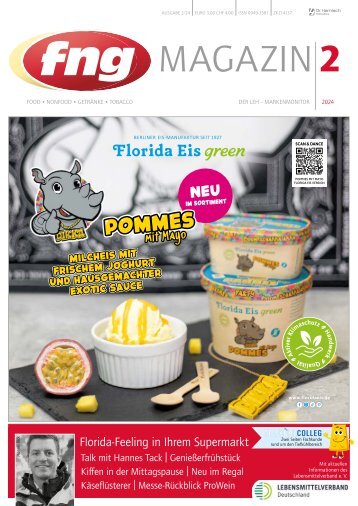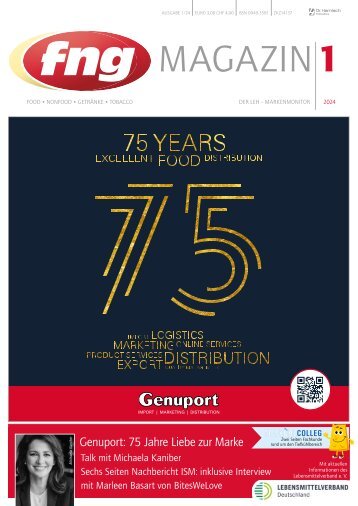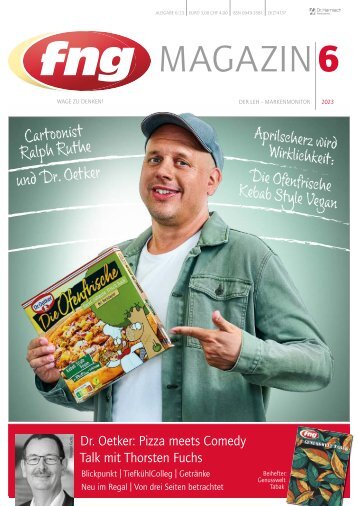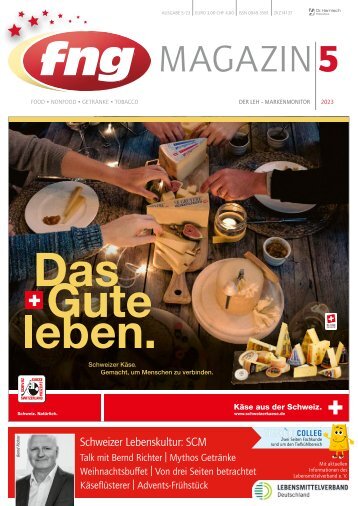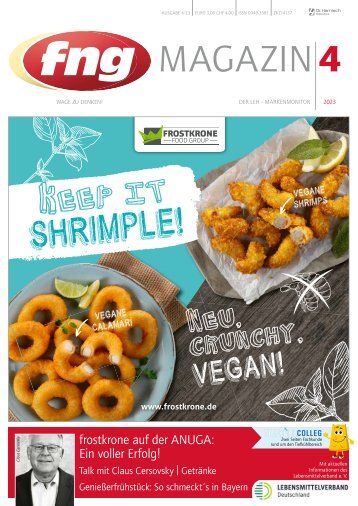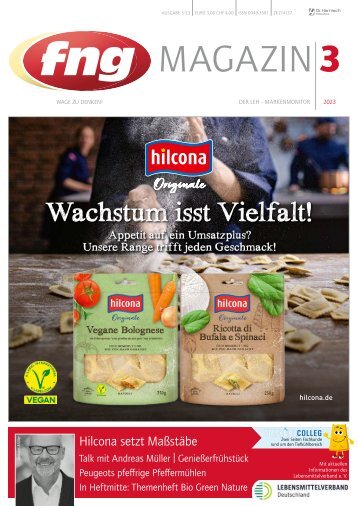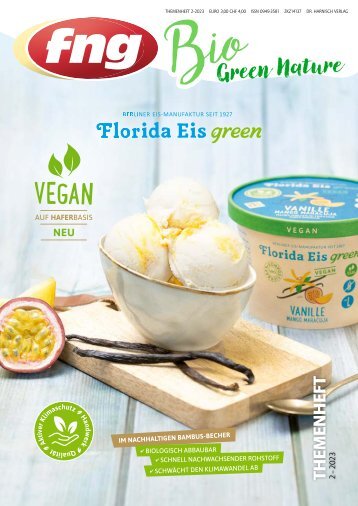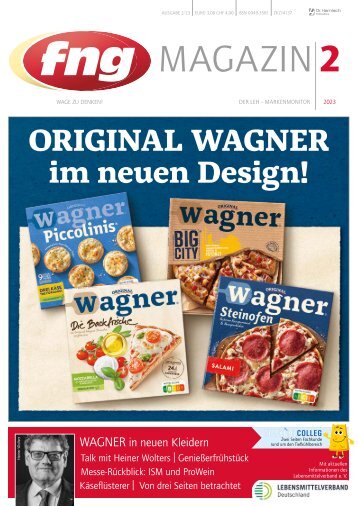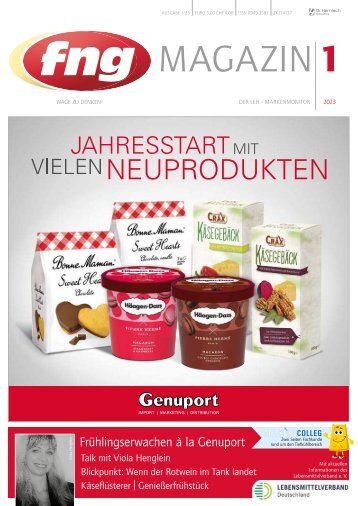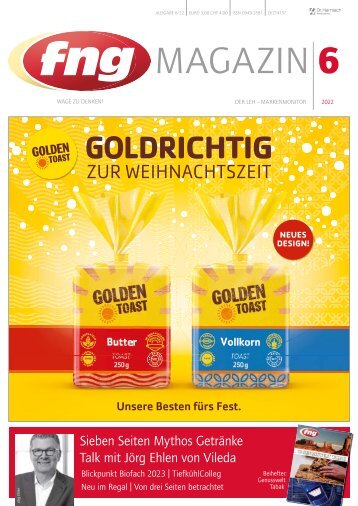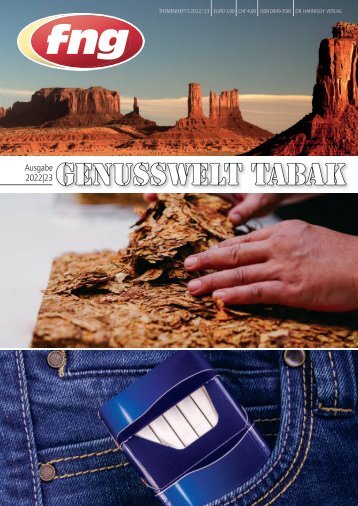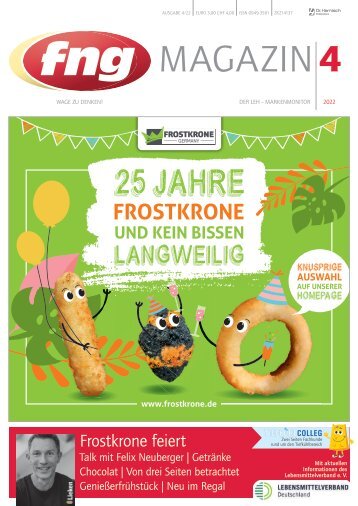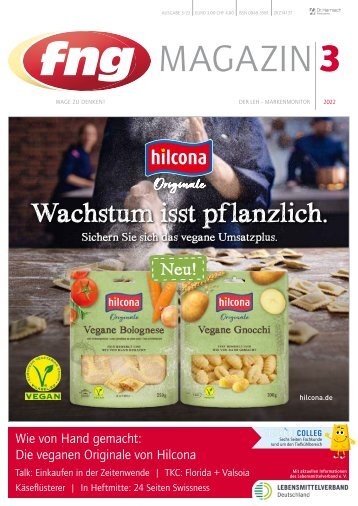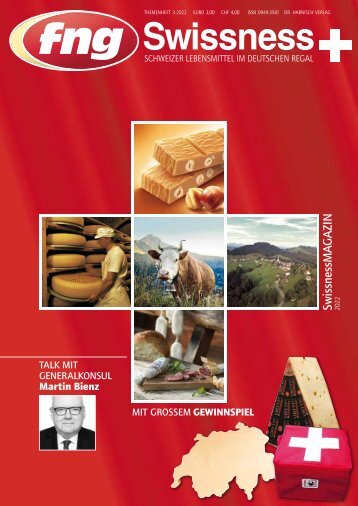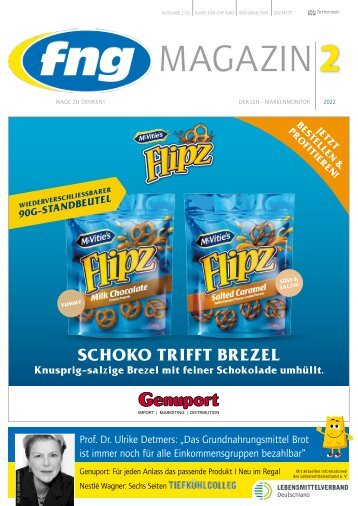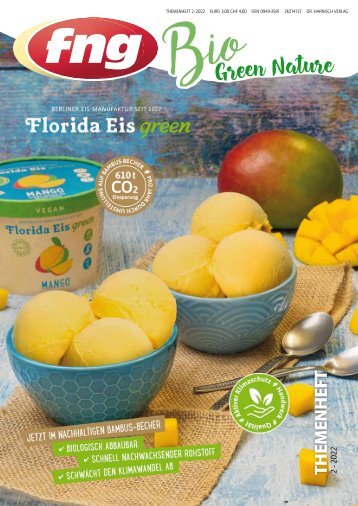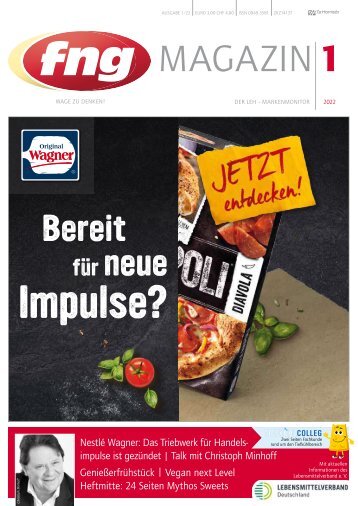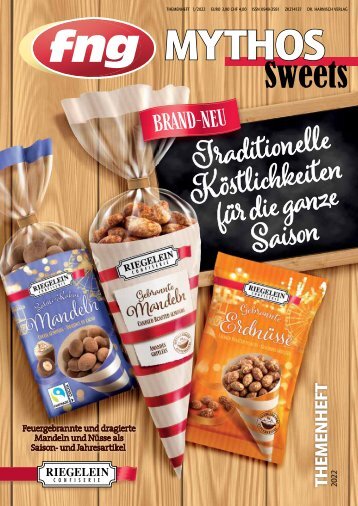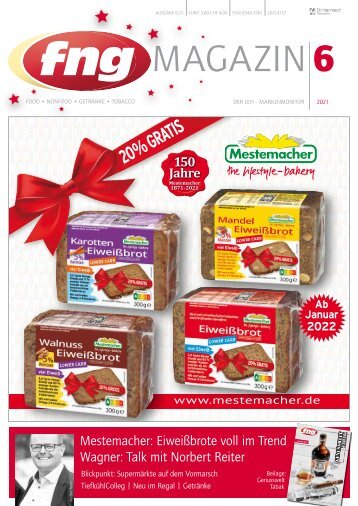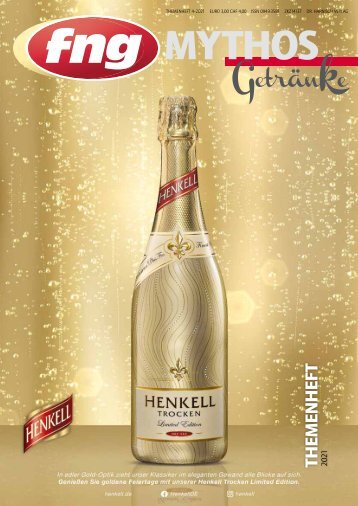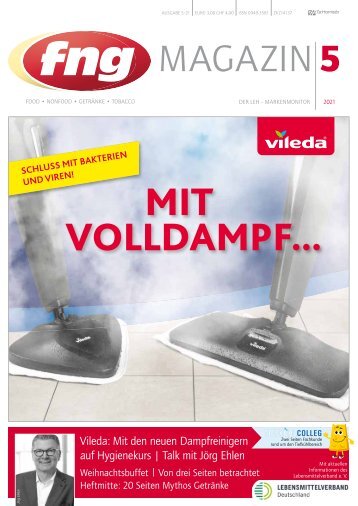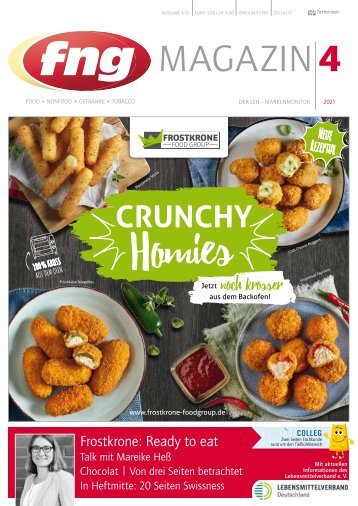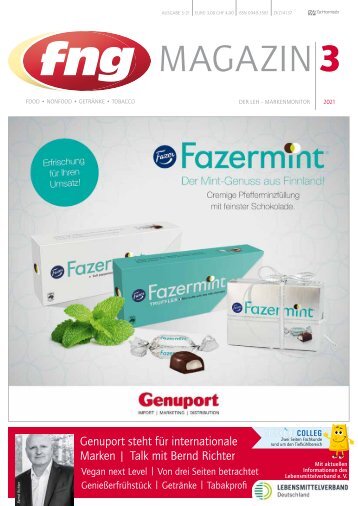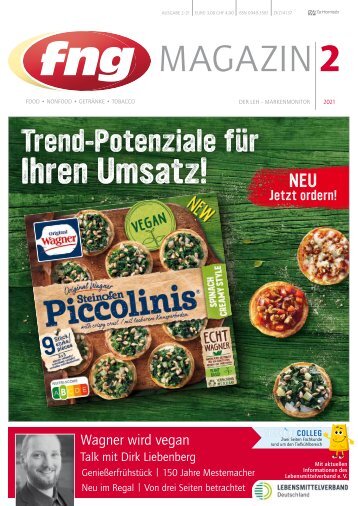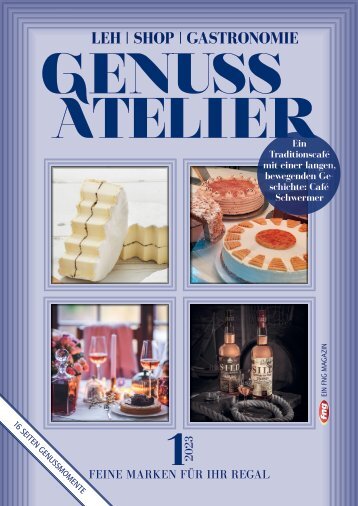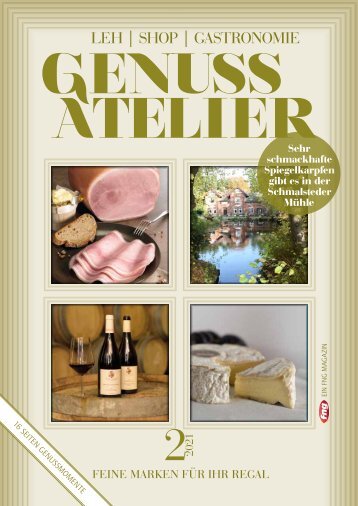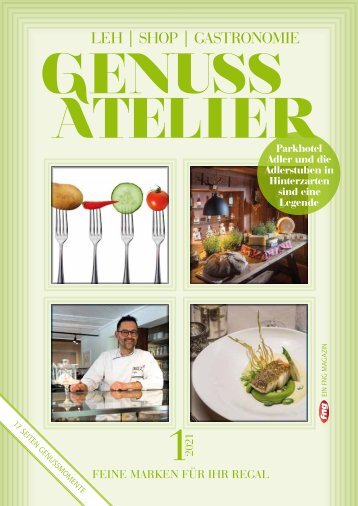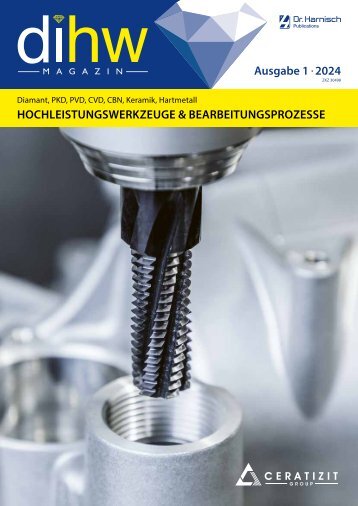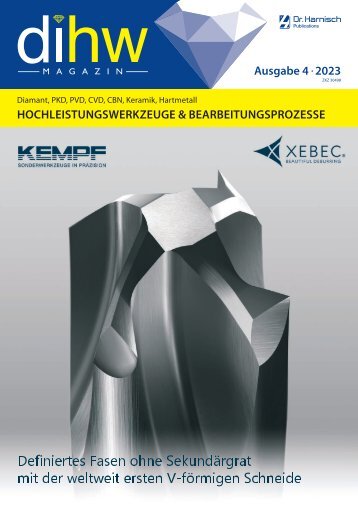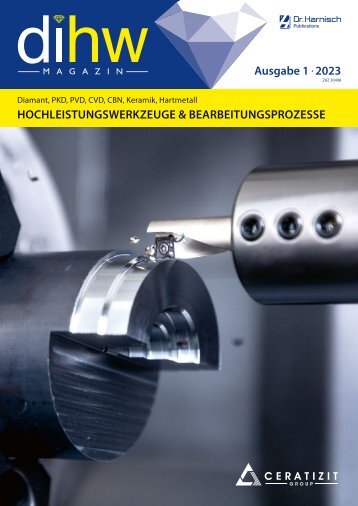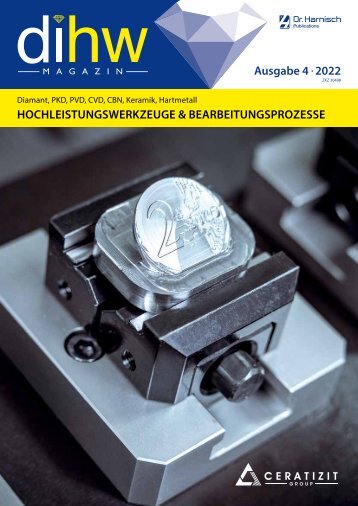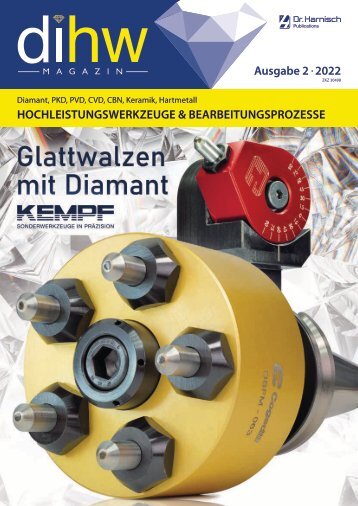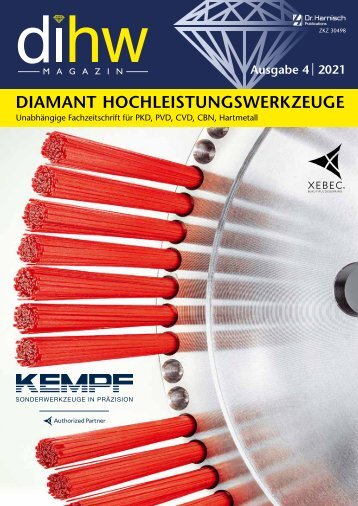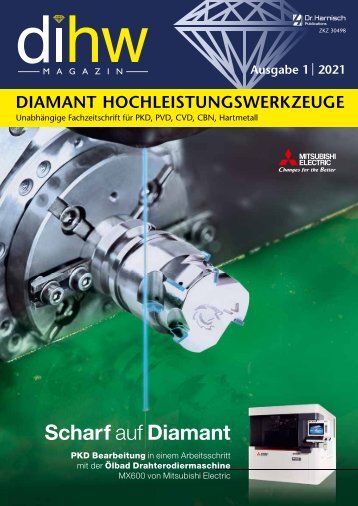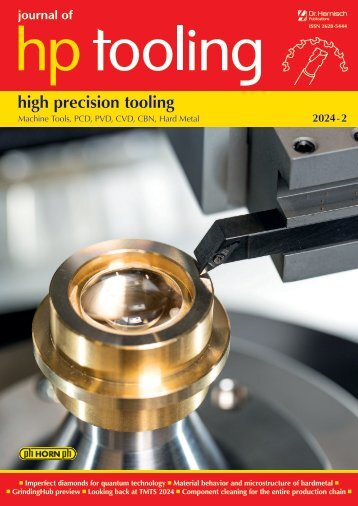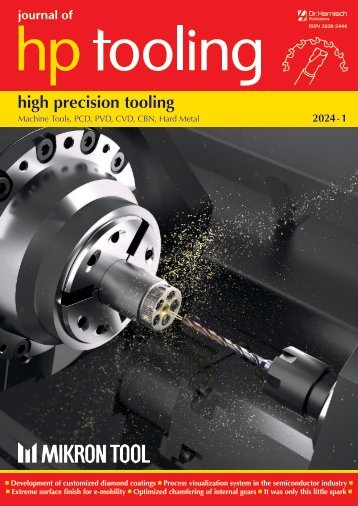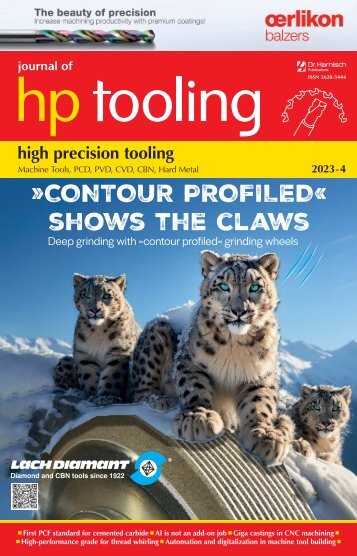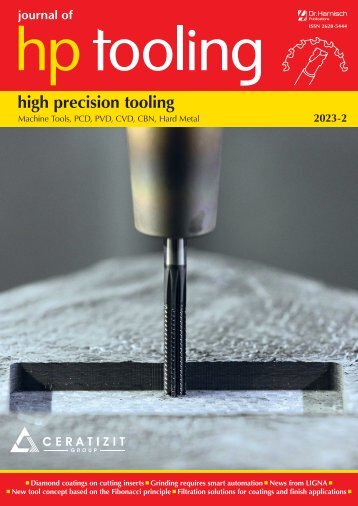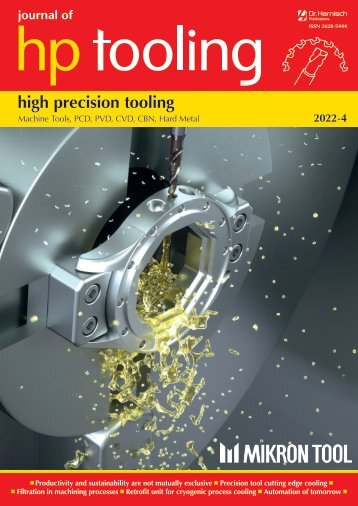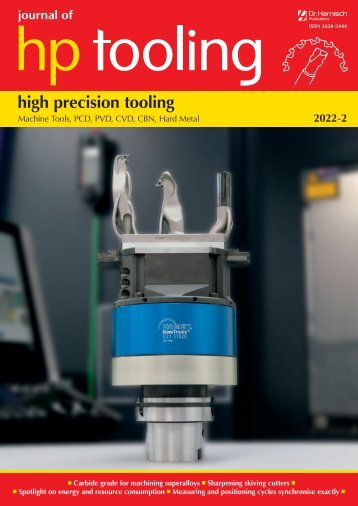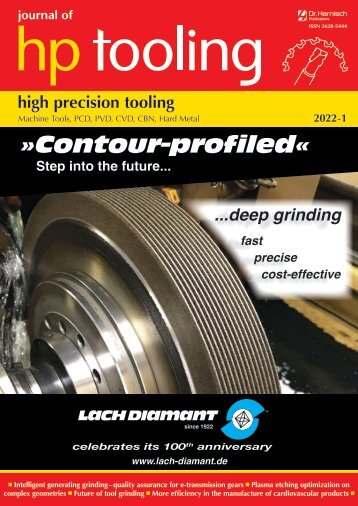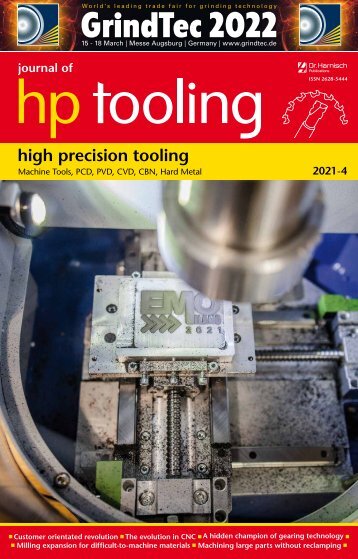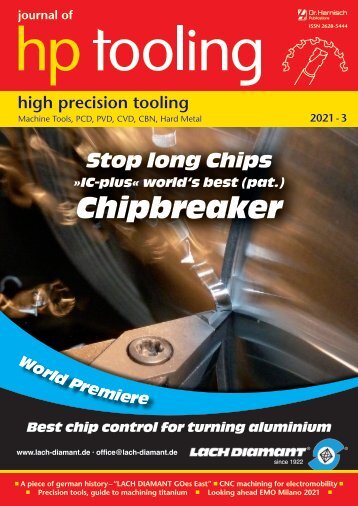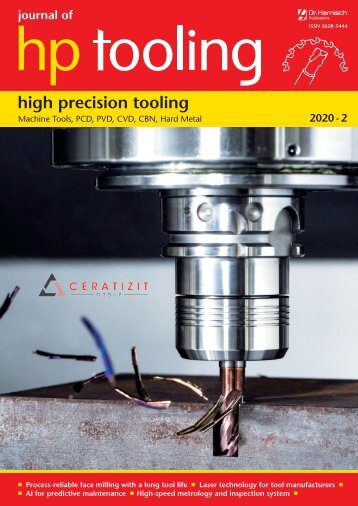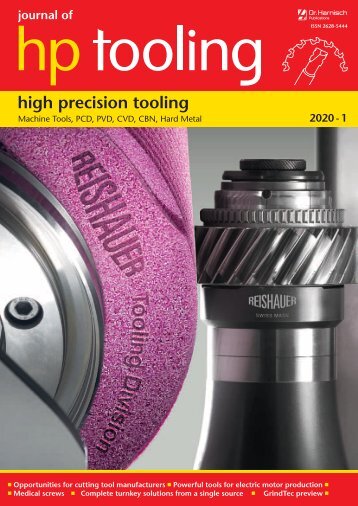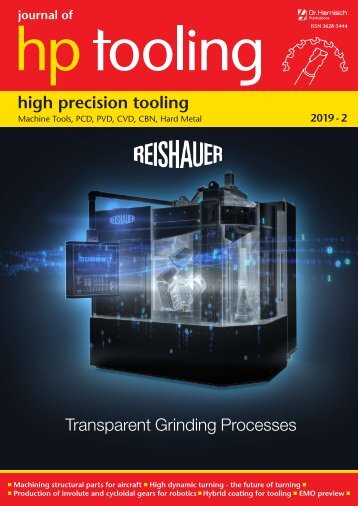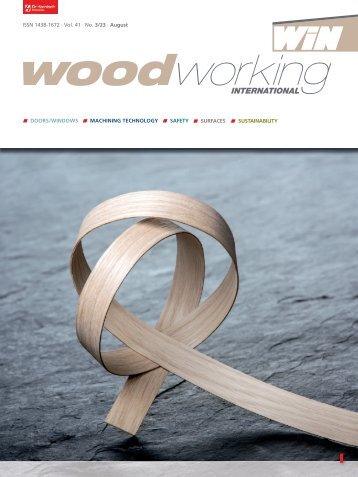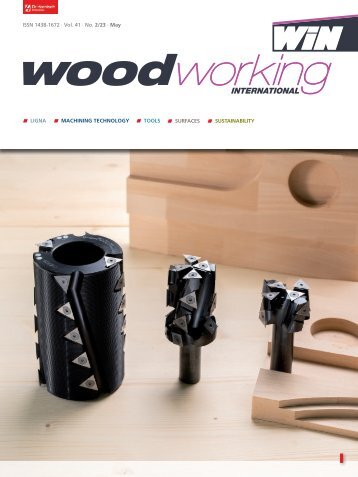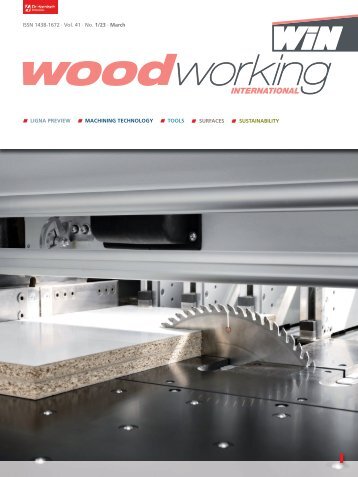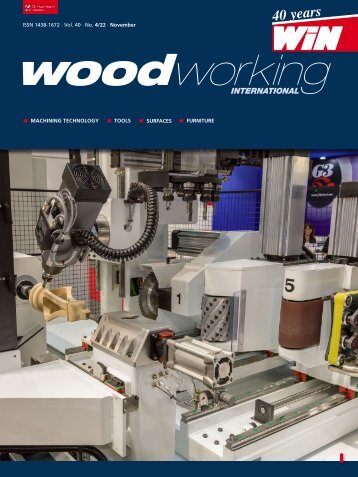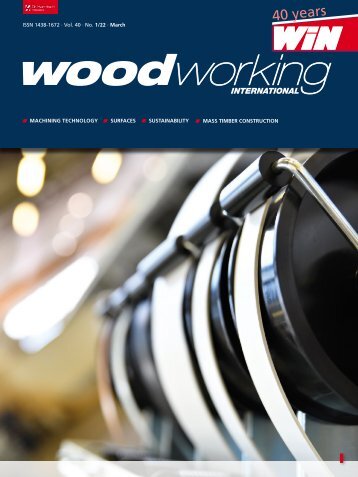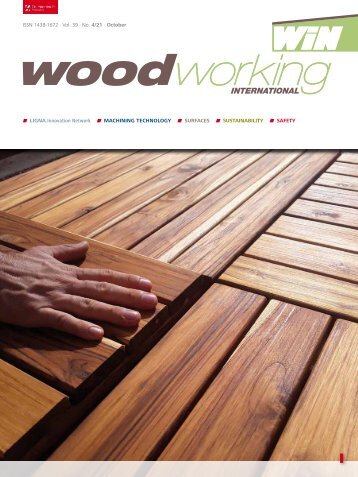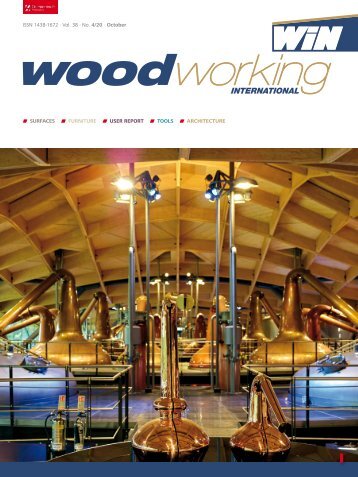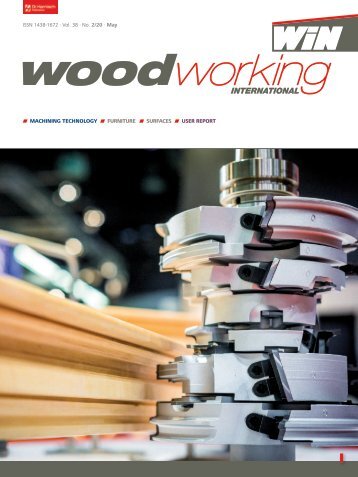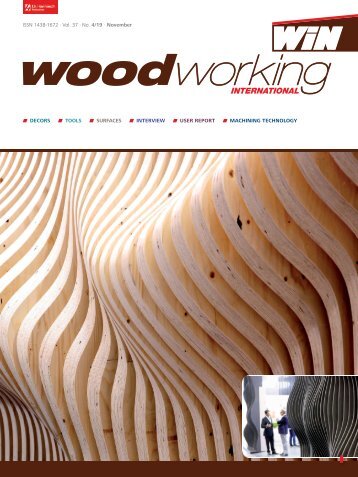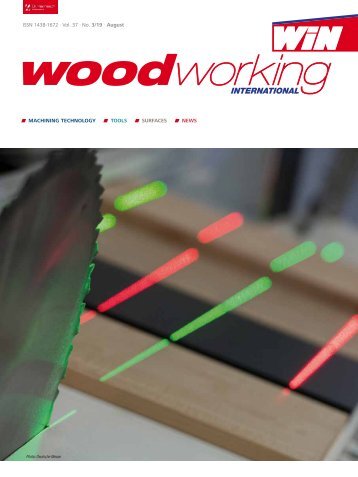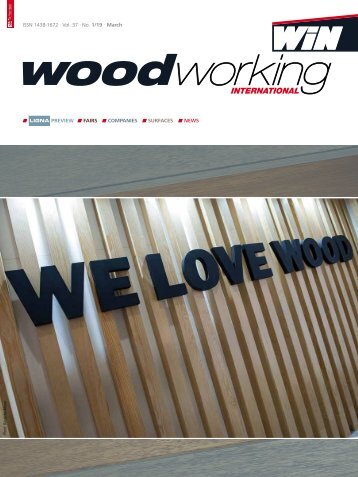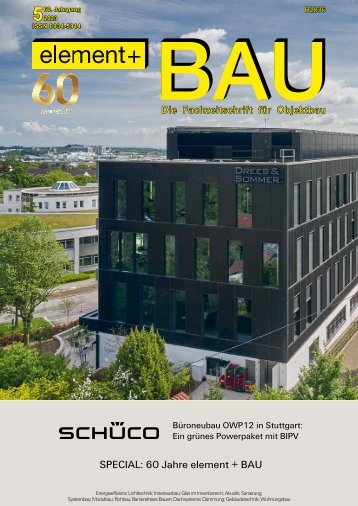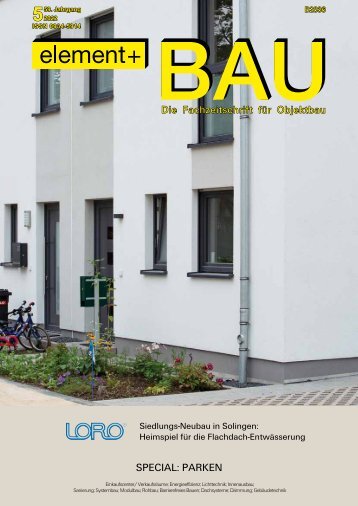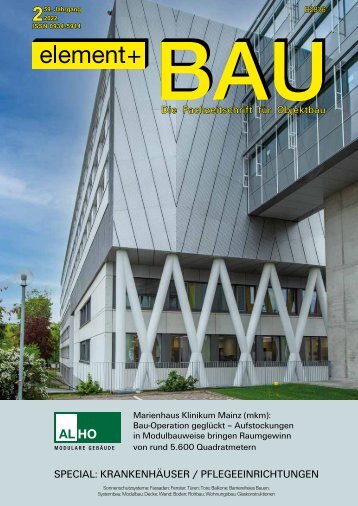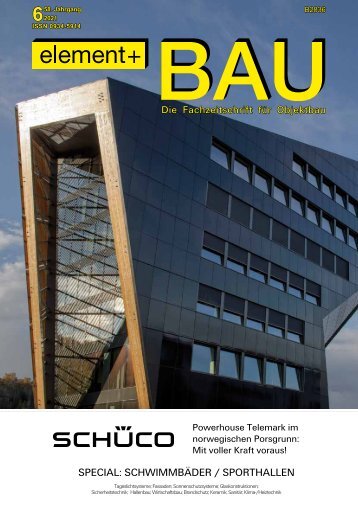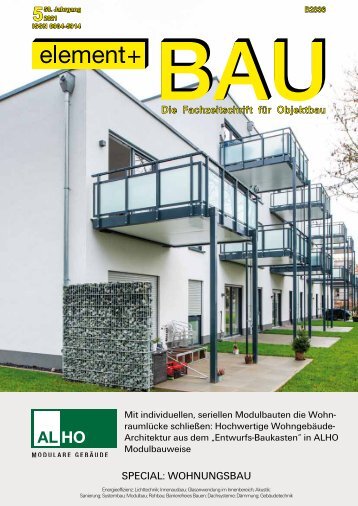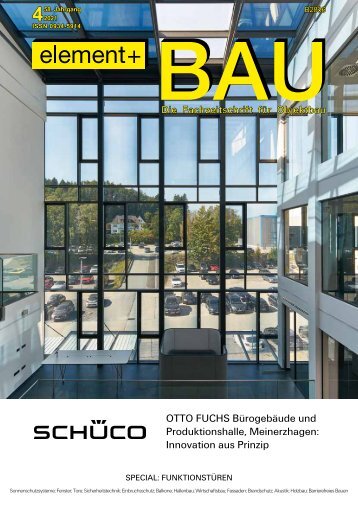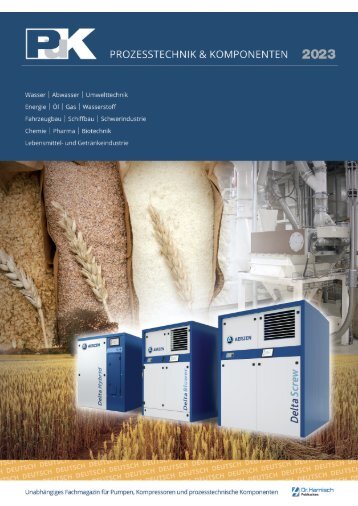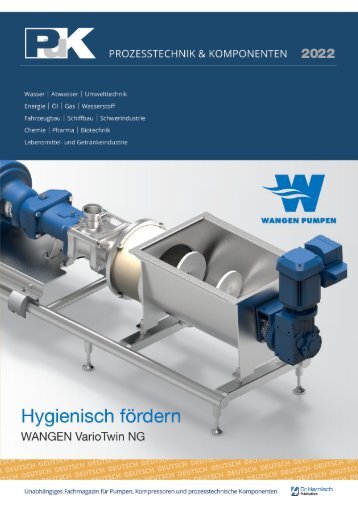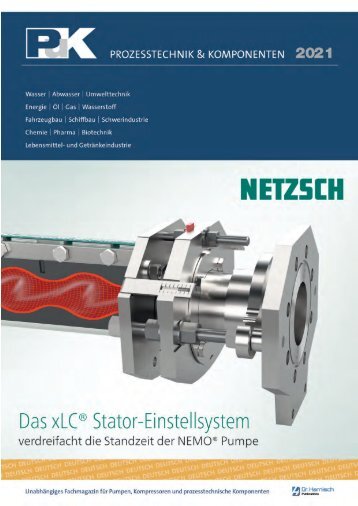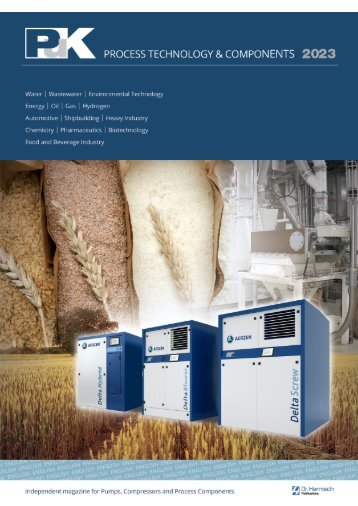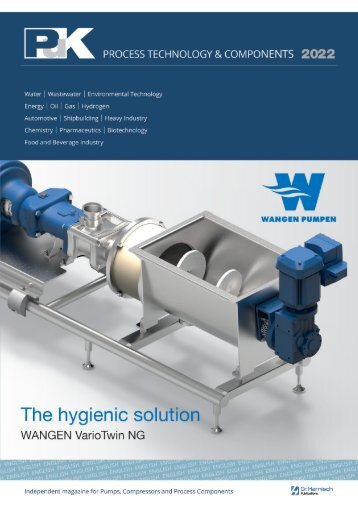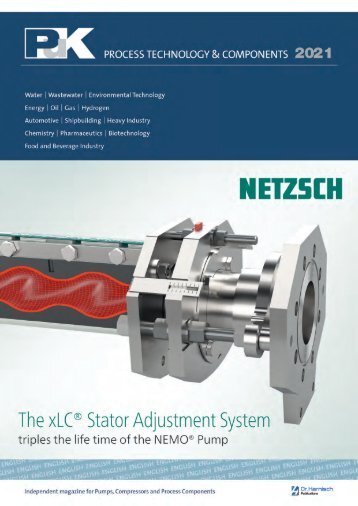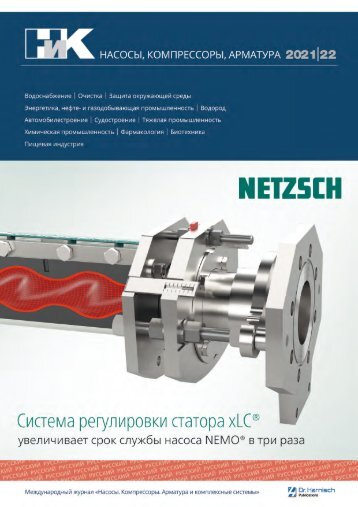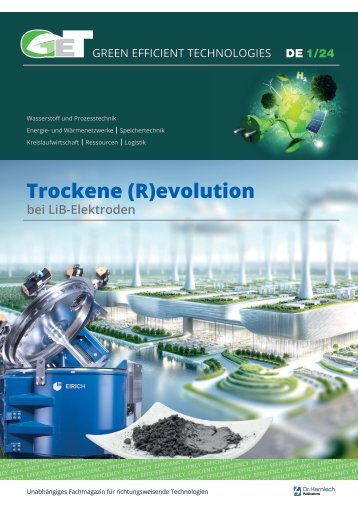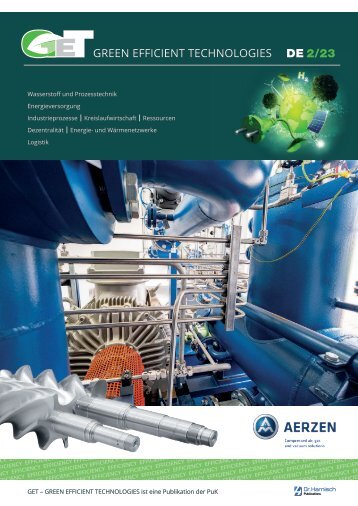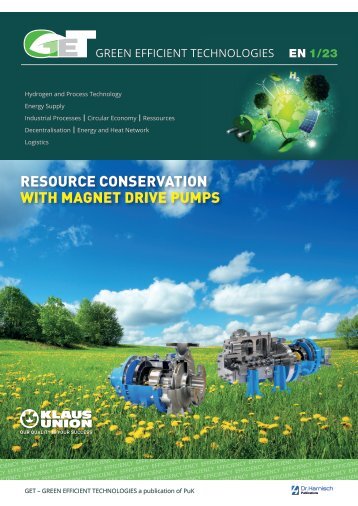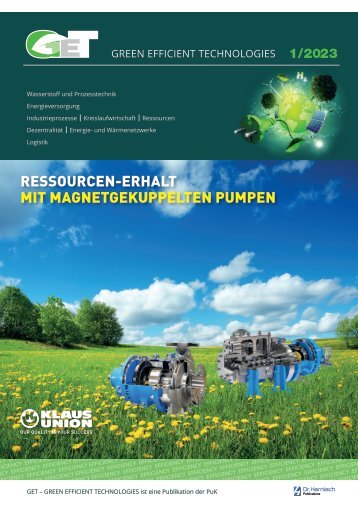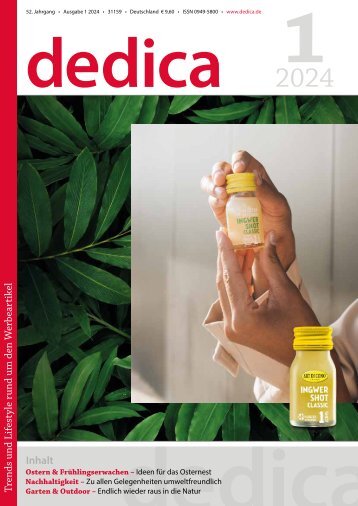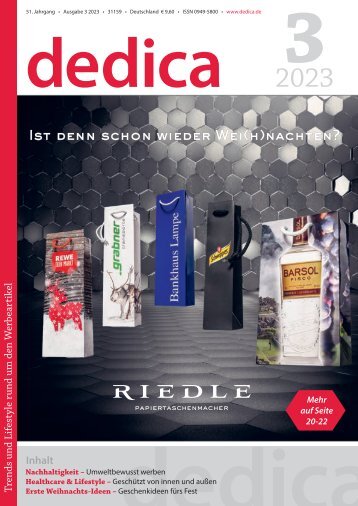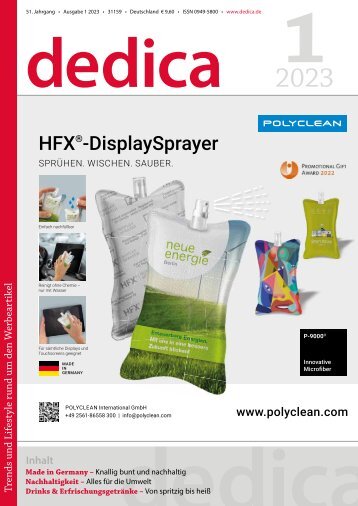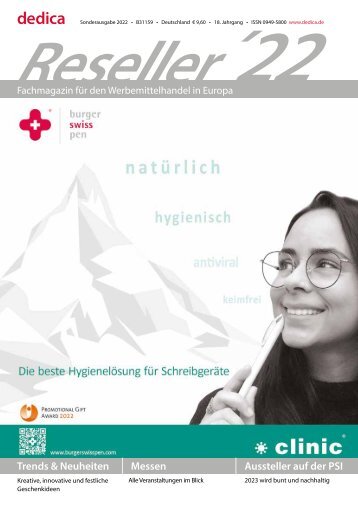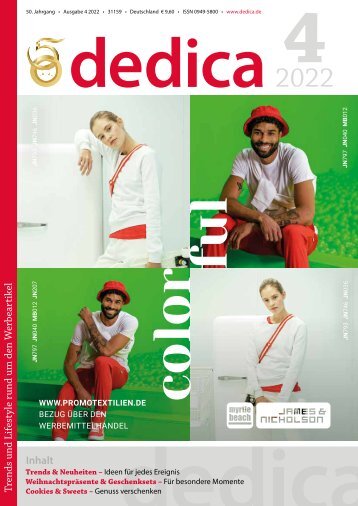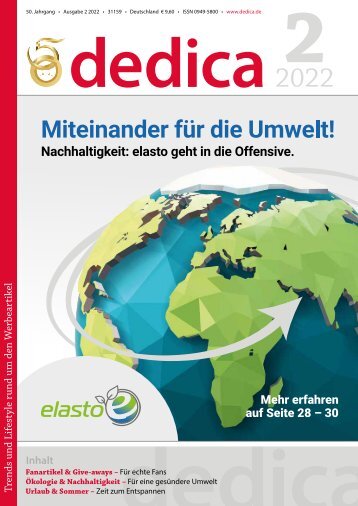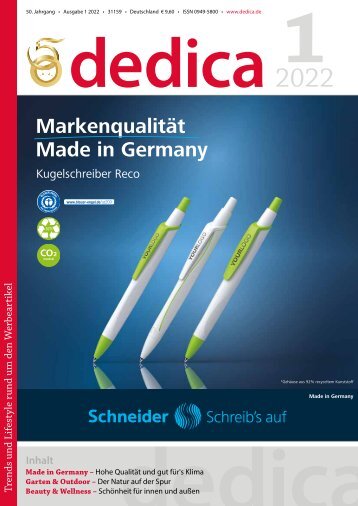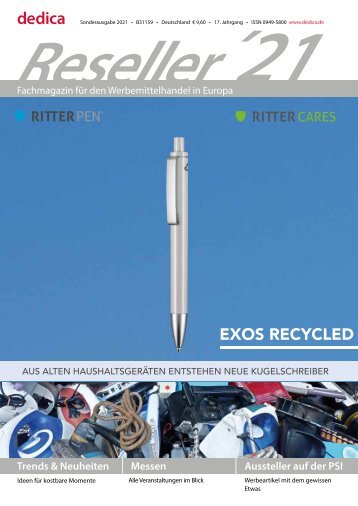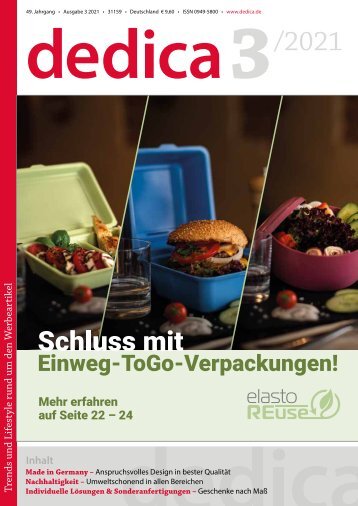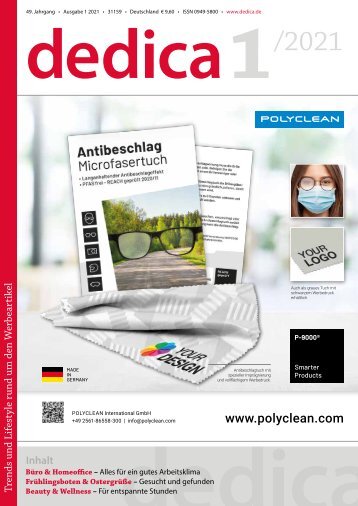food Marketing - Technology 5/2022
- Text
- Harnischcom
- Coconut
- Processes
- Packaging
- Processing
- Ingredients
- Germany
- Products
- Cinnamon
- October
- Marketing
Ingredients containers
Ingredients containers are sealed, tracked during transport and only opened again at the Swiss plant. This prevents contact with oxygen and foreign matter. This procedure almost completely rules out any risk of contamination from the country of origin to the processing plant. The raw materials are sampled as soon as they are filled into the containers and then examined in the Swiss quality laboratory. Responsibility and sustainability Nutriswiss works closely with nonprofit organizations and funds activities aimed at economic improvements for regional partners. This includes visiting the contract partners on site and confirming compliance with standards. “Many small farmers and their families earn a large part of their livelihood from the sale of coconut oil. We therefore see it as our responsibility to continuously improve the situation on site,” says Burla. The cooperation with the plantation operators is designed for the long-term. Only in this way can improvements be developed, tested and established during several harvest cycles. Nutriswiss is happy to share its knowledge about possible contamination: “In the long run, the growers benefit from long-lasting coconut palms and high-quality yields, which is our common goal,” says Burla. Representatives from the refinery check and document processes on site and ensure that the coconut oil meets the highest standards of quality. Manufacturers and processors of vegetable oils are faced with increasingly strict limits. These regulations are an expression of a political and social system that’s striving for the highest levels of food safety. “Sensitive oils, such as coconut oil, comprise part of the daily business of many food manufacturers and also for us. Whether for infant food or other applications, we always put a great emphasis on the highest quality and a balanced recipe,” notes Burla. Purification for highest quality Once at the plant, the company’s own quality laboratory not only provides a detailed review of the extent of possible contamination, but is also responsible for check-ing the finishing process: a comprehensive fat index profile is created for each product before, during and after processing. Burla comments: “The degree of pre-contamination of the raw material varies greatly, which is why our processes are as flexible as possible. This allows us to get the best out of every raw material in terms of the analytical and sensory properties that match the final product we are aiming for.” Nevertheless, it’s clear that the material that leaves the Nutriswiss plant is significantly less contaminated than the goods provided: “The detected values of MOSH/MOAH are much lower, as are the pesticide residues; these are remarkable effects,” Burla confirms. The raw material is then alkaline neutralized, bleached, filtered and finally deodorized. Unlike traditional vegetable oil refining, Nutriswiss does not require the time- and temperatureintensive processes for the removal of pesticides and mineral oil residues (MOSH/MOAH). Instead, the company relies on physical treatment 12 food Marketing & Technology • October 2022
Ingredients using modern distillation technology followed by mild deodorization. In this way, the formation of process contaminants is minimized, while pesticides, MOSH/MOAH, polycyclic hydrocarbons (PAH) and plasticizers such as DEHP are significantly reduced. At the same time, valuable ingredients are protected and yield losses are minimized. Nutriswiss supports customers from initial idea to market maturity and offers pilot-scale modification trials. A large part of the Nutriswiss portfolio comprises special products that are developed and tested to meet customers’ specific requirements. How exactly the profile of an oil is modified or whether a special blend is developed depends strongly on the respective application. At the end, customers receive a protocol that precisely documents the quality differences between the input values and those of the final product. Nutriswiss successfully masters the balancing act between moderate process parameters and effective purification based on many years of expertise with sensitive special oils. Diligence, monitoring in the company’s own laboratory and the innovative combination of technical processes ensure that the refined product always shows measured values that are close to the detection limit(s). Swiss expertise, global reach Nutriswiss AG specializes in the refining of high-quality, tailor-made edible fats and is the Swiss leader in special and organic products. For national and international food manufacturers, the catering, cosmetic and pharmaceutical industries, as well as artisan bakers, crude oils from all over the world are neutralized, bleached, modified by fractionation, transesterification or hydrogenation, mixed and deodorized. Burla concludes: “It’s important to remove impurities and residues from oils, to optimize their properties and to source the raw materials sustainably. At the same time, both consumer demand and legal requirements must be met. We take our responsibilities very seriously; what leaves our plant is a perfectly safe food.” At its headquarters in Lyss in the canton of Berne in Switzerland, a total of 90 employees produce around 55,000 tonnes of high-purity edible oils and fats annually, 95% of which are of vegetable origin. Manufacturers can purchase the oils that have been imported and processed by Nutriswiss directly. In addition, it’s possible to have self-provided oil processed on a contract refining and manufacturing basis. The Swiss company refines batches in the range of 500–2500 kg. This makes it possible to refine even very small quantities of rare oils, for example, to develop suitable fat components for novel foods. fmt One product, many applications Depending on the room temperature, coconut oil can be solid (below 25 °C) or creamy or liquid (above 25 °C). Owing to its high content of saturated fatty acids, it’s very heat-stable and ideal for baking, cooking and deep frying. However, it’s also often used as an alternative to palm oil as it has similar technological properties. In the development of palm-free filling fats, couvertures and glaze masses for the chocolate and confectionery industry, coconut oil serves as a structuring base and also produces a cooling effect in the mouth. It gives vegan alternative products such as vegetable cream cheese the necessary firmness and ensures a pleasant melting sensation. Coconut oil is also used in cosmetics such as body or haircare products. food Marketing & Technology The flexitarian way of living. Tasty and nutritious plant-based ingredients. A mind-boggling 25% of consumers globally are flexitarians. They are drawn to plant-based options because of their healthful appeal, ecological convictions or the pleasure of trying something new. BENEO helps you develop plant-inspired options that are simply delicious. Sharpen up your recipe with natural ingredients that bring out pure flavours and exciting textures. Create a taste experience consumers will thoroughly enjoy with new and inspiring dairy-free or meat-free recipes. What will be your signature ingredient? Follow us on: www.beneo.com 13 Key No. 101983
- Seite 1 und 2: 5/22 Vol. 36 • 31377 ISSN 0932-27
- Seite 3 und 4: Editorial The Dairy Dilemma There i
- Seite 5 und 6: tting Technology 9/6/22 3:14 PM Vol
- Seite 7 und 8: Cover Story against their height po
- Seite 9 und 10: ogy 9/6/22 3:14 PM 31377 Cover Stor
- Seite 11: Ingredients Online & In-Person 28 N
- Seite 15 und 16: Ingredients Key No. 102117 food Mar
- Seite 17 und 18: Ingredients however, still places a
- Seite 19 und 20: Ingredients methodology, the prebio
- Seite 21 und 22: Ingredients Loryma_Plant based Sala
- Seite 23 und 24: Processing food Marketing & Technol
- Seite 25 und 26: Processing If you solve the heating
- Seite 27 und 28: Transforming global food production
- Seite 29 und 30: Processing When designing equipment
- Seite 31 und 32: Processing HYGIENE TECHNOLOGY - MAD
- Seite 33 und 34: Processing dehydration, stems, peel
- Seite 35 und 36: Processing CURO-16 packing system,
- Seite 37 und 38: Packaging The Movikit software modu
- Seite 39 und 40: Packaging With the help of the auto
- Seite 41 und 42: FILTECH February 14 - 16, 2023 Colo
- Seite 43 und 44: Marketing automatically billed. In
- Seite 45 und 46: Marketing Food & Beverage Industry
- Seite 47 und 48: Marketing Visit to Equiproin in Oss
- Seite 49 und 50: Events Cinnamon oil flavoring For t
- Seite 51 und 52: Events 8-10 NOV 2022 DUBAI WORLD TR
- Seite 53 und 54: The Global Leader in Food Cutting T
Unangemessen
Laden...
Magazin per E-Mail verschicken
Laden...
Einbetten
Laden...




















